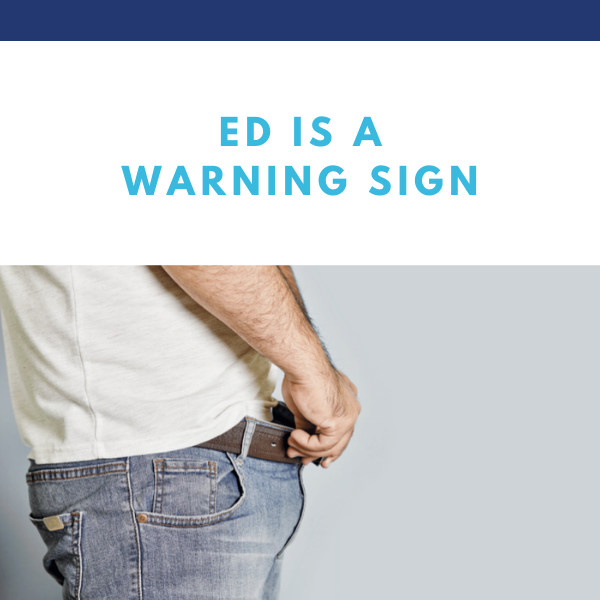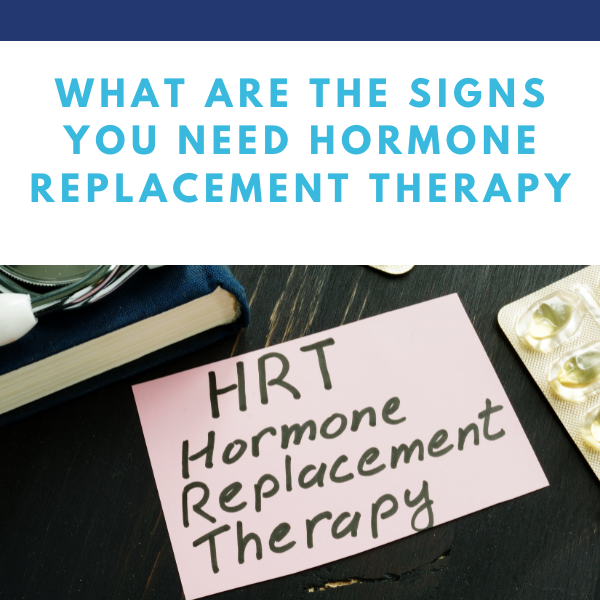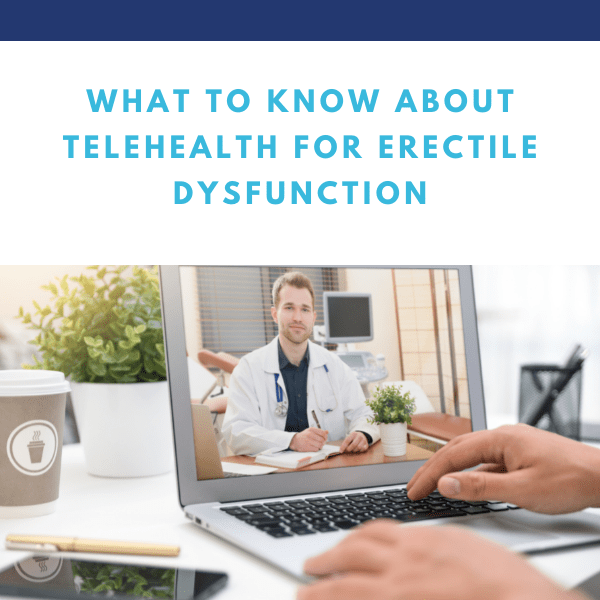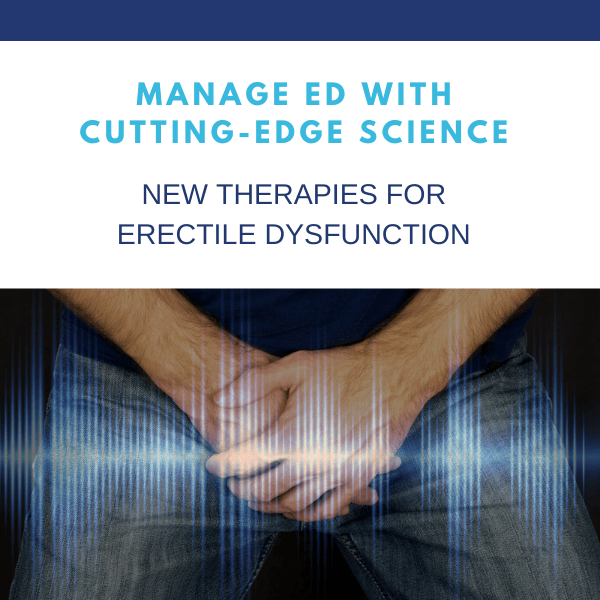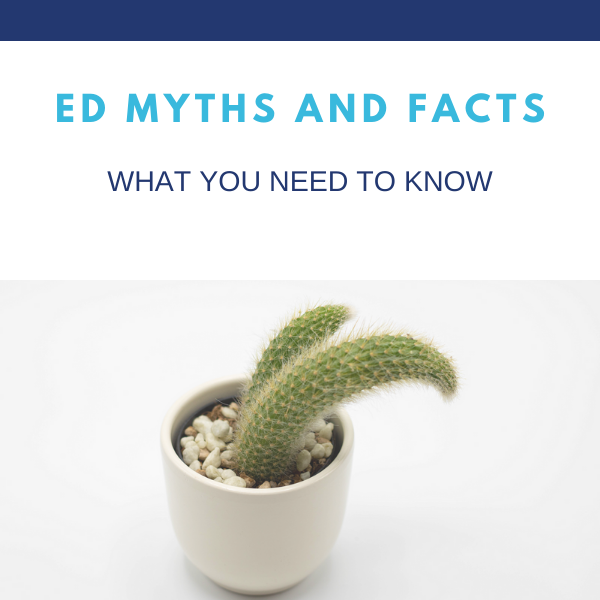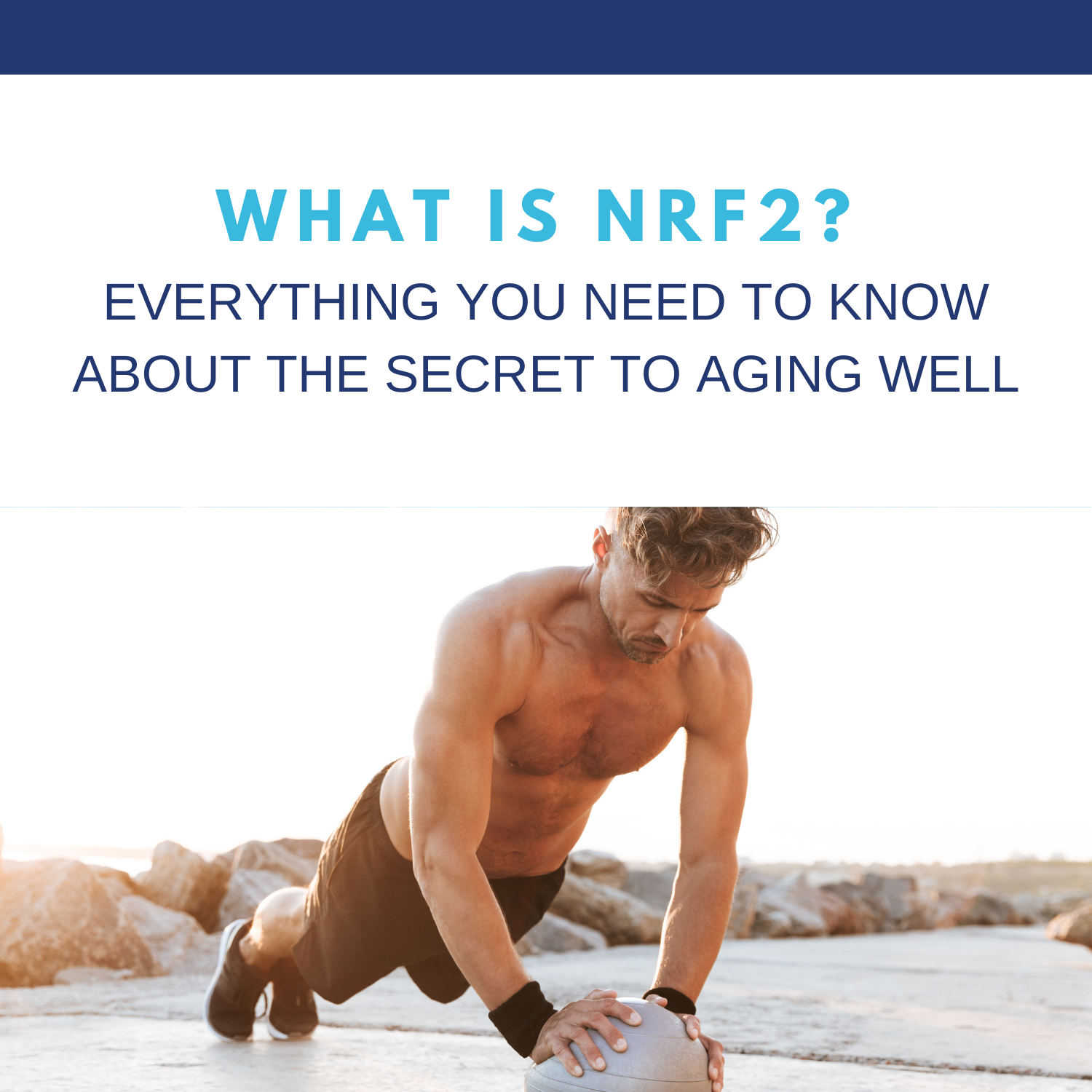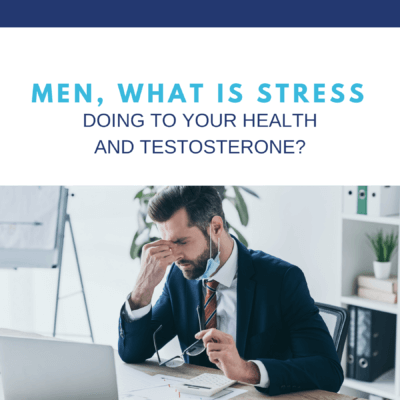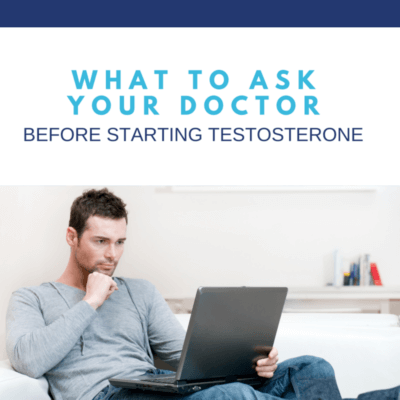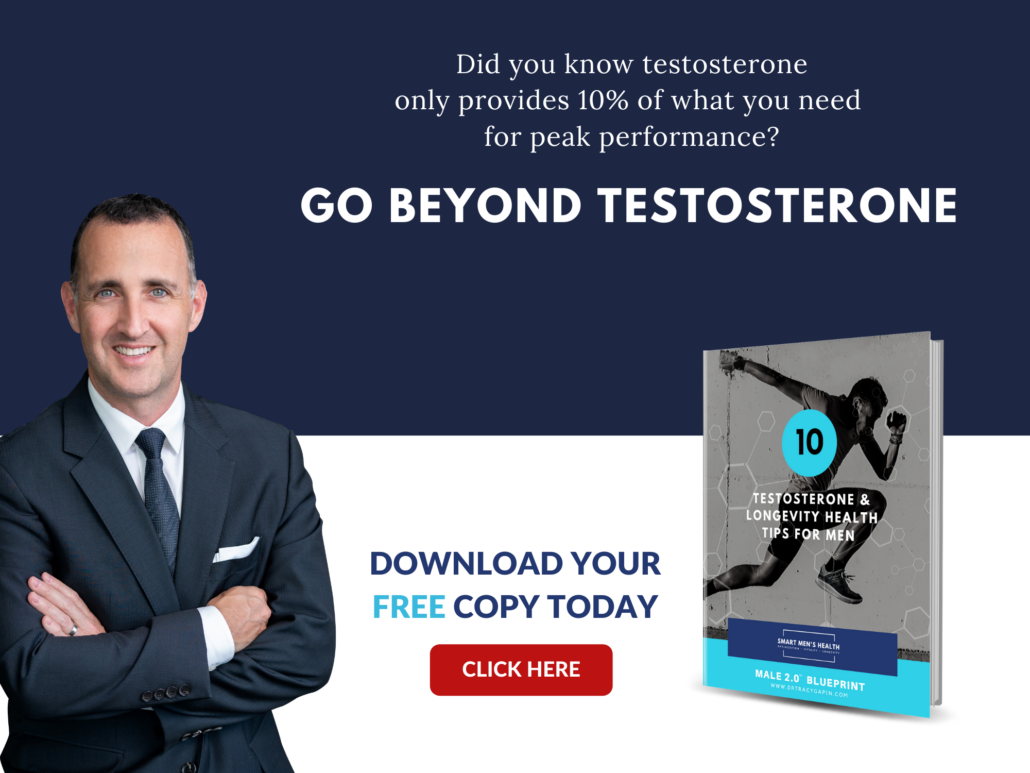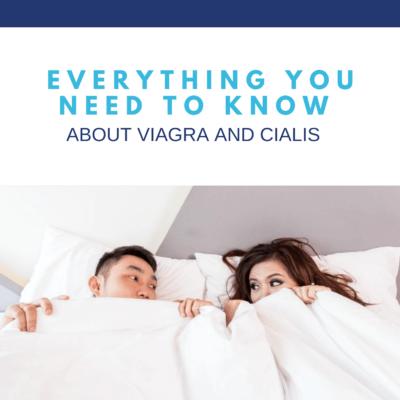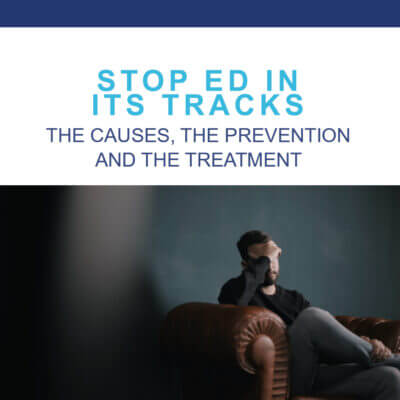If you have erectile dysfunction, you may visit a doctor to treat the issue. Yet, ED is a warning sign of something deeper.
Continue readingWhat Are The Signs You Need Hormone Replacement Therapy
Some men are unaware or ignore subtle and obvious signs of testosterone deficiency. Here are the signs you need hormone replacement therapy!
Continue readingWhat To Know About Telehealth for Erectile Dysfunction
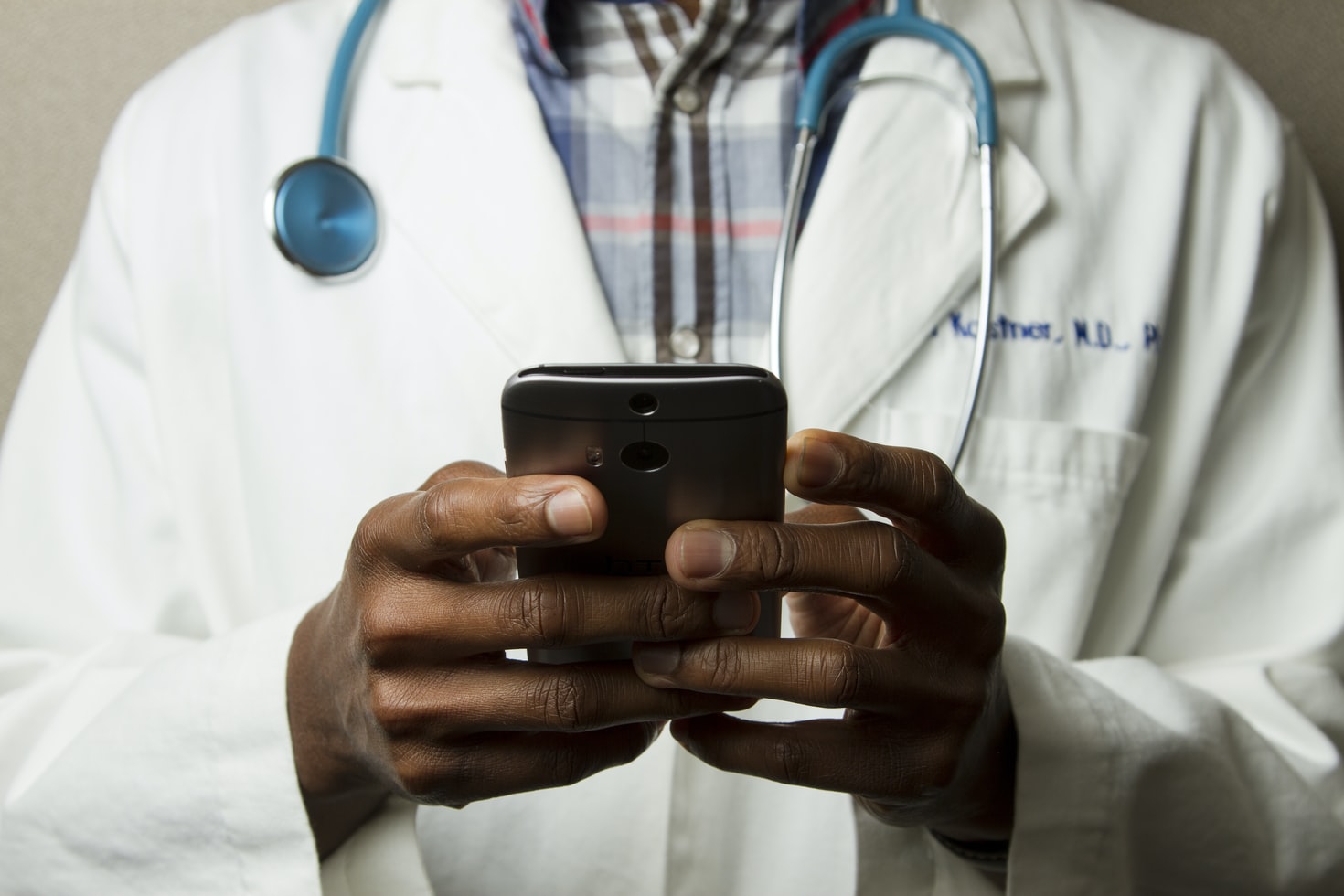
Erectile dysfunction is awkward. And not just in the bedroom—it can feel uncomfortable to talk about in your doctor’s office, too.
I get that. I’m a board-certified urologist, so ED is one of the most common reasons why men come to see me. Even though I talk about it every day, I know it can still be incredibly uncomfortable for my patients.
And while there have been very few silver linings to the COVID pandemic, there has been one: people are much more willing to engage in telehealth or online doctor visits. And, interestingly, that has made men more comfortable speaking to a professional about ED.
In this article, I want to walk you through what telehealth for erectile dysfunction looks like. I want to dispel some of the myths around it, and emphasize that an online visit with your doctor really can be an effective way to address ED.
It’s accessible, it’s more comfortable, and it can be effective.
Can Telehealth Work for ED Therapy?

Right off the bat: are online ED consultations an effective way to get treatment?
Yes! They certainly can be. Virtually all of the things that I would do in an in-person visit at my clinic to evaluate and diagnose ED, I can do over the phone or via Zoom.
Several studies have even found that online telehealth platforms aimed at treating erectile dysfunction can be effective. Of course, you always want to make sure you’re having your telehealth consultation with a board-certified physician.
Benefits of Telemedicine for ED
There are many benefits for telemedicine:
- Access. Telehealth makes getting ED help much more accessible and less embarrassing than in-person visits.
- Comfort. Telehealth consultations done from the comfort of your home helps you feel more at ease and comfortable talking about ED.
- Convenience. You can have your doctor’s visit from anywhere on your phone or laptop!
- Quality of doctor. I’m based in Sarasota, Florida, but telehealth allows men who want VIP-level service to see me from anywhere.
- Less waiting. No more sitting around for 45 minutes in the waiting room—you’ll know exactly when your consultation starts, and they’re always on time!
- Same high-quality service. According to research, telehealth patients get the same length and quality of consultation as in-person patients do.
What Can a Doctor Do for You Online?
During an online visit, doctors can order any additional testing needed to manage erectile dysfunction. They can:
- Conduct a thorough evaluation of erectile dysfunction signs and symptoms
- Order blood tests to evaluate your hormone levels
- Provide prescriptions for common ED treatment options like Viagra and Cialis that can be delivered to your home.
- Provide information on other treatment options for ED and lifestyle changes that support sexual health
- Offer follow-up visits to evaluate the efficacy of ED treatments
What Can’t a Doctor Do Online?
There are some cases when you will need to see your doctor in person. If you are experiencing any pain, swelling, or discomfort, an in-person consultation may be necessary so that your doctor can do a proper physical inspection.
And, if you’re experiencing any of the following symptoms, you should seek emergency treatment:
- Inability to urinate together with swelling and pain in the lower abdomen
- A sudden onset of pain in the scrotum, or swelling in the testicles
- A prolonged, painful erection that lasts more than 4 hours
Those issues require in-person emergency care. But if you’re concerned about difficulty getting or maintaining an erection, telehealth is a perfect option for you.
How To Prepare for Your Telehealth Appointment
Prepare for a telehealth appointment in the same way that you would for an in-person visit. Have a pen and paper handy to take notes if you need to. Make a list of questions that you have beforehand. And make sure you don’t have any appointments right after so that you don’t feel rushed.
Make sure your internet connection is strong and that your camera and microphone work so that we can both hear and see each other. And make sure you have a quiet, private space where you can speak freely.
How it Works: What Will My Telehealth Appointment Be Like?

When I’m assessing erectile dysfunction, I’m going to ask you to tell me what you’re experiencing and about your medical history. Then I’ll ask some follow-up questions like:
- How long have you been struggling with trouble getting an erection?
- What have you tried so far in terms of ED treatments?
- What are your diet, sleep, and exercise habits like?
There are many different possible causes of ED including vascular problems, low testosterone, poor diet, medications, or even high stress. I’ll ask several questions to try to determine the potential causes.
Depending on the situation, I may recommend some blood tests so we can check your hormone levels, cardiovascular function, or other key markers. These test results can help identify certain causes of ED and can lead to more effective treatments than a one size fits all pill.
What Are My Erectile Dysfunction Treatment Options?
Once we understand the cause of your ED, we’ll be able to discuss treatment options. Treatment options for ED can include:
- Lifestyle changes
- Hormone Replacement Therapy (HRT Therapy)
- Oral ED medications like sildenafil (Viagra) and tadalafil (Cialis)
- GAINSWave
- The Priapus P-Shot
- Peptide therapies
- Stem cell Injections
- And more.
Remember that not all treatment options are appropriate for every person. That’s why it’s so important to understand your situation before we decide on a treatment plan—we want to choose the treatments that are most likely to work, and that don’t have unnecessary side effects.
If we choose prescription medications as the best option to treat your ED, we have the ability to discreetly and conveniently ship medications to your home, avoiding a trip to the pharmacy entirely.
How Is a Telehealth Appointment with an Erectile Dysfunction Expert Different From Mail-Order Services?
You can find many online ED clinics that offer you a quick consultation, which is usually followed by a healthcare provider writing you a prescription for viagra. Unfortunately, with those clinics, the provider is almost never an expert in urology with specialty training in erectile dysfunction.
The other issue with these online clinics is that, because they make large profits selling oral medications, that’s the only solution they tend to provide. While oral medications like Viagra and Cialis certainly can be effective treatment options, they’re not appropriate for everyone.
Sometimes ED can be a signal of more sinister medical conditions—diabetes, heart disease, high blood pressure, high cholesterol, and others. Quick visits with online mail-order services may not be thorough enough to catch warning signs of these more serious health conditions that require further testing.
Many of these companies are only in the business of selling you medications. They’re not necessarily providing high quality personalized healthcare. Work with a men’s health expert to ensure you get the most effective and appropriate treatment options available.
Telehealth Can Help You Combat ED

Erectile dysfunction is a legitimate health concern that affects millions of men in the US. We take women’s sexual and reproductive health incredibly seriously, but often ED is trivialized in the public eye. Erectile dysfunction can take a significant toll on the mental health, drive and self-esteem of guys who struggle with it. It can also signal that something else is going on with your health.
That’s why it’s so important to get evaluated and treated for ED. You don’t have to suffer from ED or feel marginalized as a result.
Telehealth is a great option for busy men. It’s private, it’s comfortable, and it’s a convenient way for men to get assessed and treated quickly. Best of all, it is effective. If you need help with ED, reach out and book a call with me today.
References
Badkhshan, S., Ernst, M., Maiers, T., Shapiro, M., & Chevli, K. (2020). Erectile Dysfunction in Telemedicine: The Standardized Patient Experience. The Journal of Sexual Medicine, 17(1), S14.
Ellimoottil, C., Skolarus, T., Gettman, M., Boxer, R., Kutikov, A., Lee, B. R., … & Morgan, T. (2016). Telemedicine in urology: state of the art. Urology, 94, 10-16.
Hsiang, W. R., Honig, S., & Leapman, M. S. (2020). Evaluation of Online Telehealth Platforms for Treatment of Erectile Dysfunction. The Journal of Urology, 205(2), 330-332
Manage ED with Cutting-Edge Science: New Therapies for Erectile Dysfunction

Erectile dysfunction (ED) is an old problem. It’s been around for a long time.
But treatment options are fairly new. The first effective oral ED medication—sildenafil (Viagra)—was discovered in 1989 and was only made available by 1998. Then came tadalafil (Cialis) and more recently vardenafil (Levitra, Staxyn) and avanafil (Stendra).
But our understanding of the causes of erectile dysfunction and how to treat it have grown tremendously since the discovery of sildenafil. These days, we’re able to manage ED with cutting-edge science and new technology.
Here are some of the newest therapy options for treating ED and the science behind how they work.
GAINSWave®
GAINSWave is the process associated with a revolutionary new therapy for ED called low intensity shockwave therapy.
How it works: Low-intensity shockwave therapies like GAINSWave treat ED by sending pulses of energy into the target tissue—in this case, tissue in the penis. The low-intensity shock waves induce angiogenesis, which is the creation of new blood vessels. This increases blood flow to the penis, making it easier to get an erection.
The therapy may also help regenerate penile nerve tissues by activating key regenerative signaling pathways (PERK/ATF4).
Is GAINSWave effective? The published literature provides good evidence to suggest that it really works.
In one meta-analysis that included data for 607 patients, researchers found a statistically significant improvement in erectile function in men who received the treatment with no reported adverse side effects.
Platelet-Rich Plasma (PRP)
Platelet-Rich Plasma, or PRP ( sometimes referred to as The Priapus shot or P-shot), involves injecting a concentration of platelets from your own blood into your penis.
How it works: PRP therapy works by injecting platelet-rich plasma from your own blood directly into the penis. Blood has four components: red blood cells, white blood cells, plasma, and platelets. By removing the red blood cells and white blood cells, doctors can concentrate the platelets and plasma and administer it directly in the penis.
Platelet-rich plasma contains proteins and growth factors that stimulate stem cells in the penis to promote repair, regeneration, and remodeling of the blood vessels and normal healthy tissue of the penis. After all, remember that an erection is simply increased blood flow to the penis! The idea is that, by injecting PRP into the penis, it helps restore normal, healthy tissue function and improve blood flow.
Is the P-shot effective? The research is ongoing but looks promising. In one recent review of several studies on PRP therapy, researchers found mostly good effectiveness with no major side effects or adverse reactions.
Most of the research on this treatment has been through small studies with low sample sizes, so it’s certainly still in the research phase. More studies are needed so we can better understand how effective this treatment is and for which men it’s best suited.
Peptides
Peptides are simply short proteins – nothing more than short chains of amino acids. But they’re amazing!
Peptides are signaling molecules that your body recognizes for very precise functions. Peptides can be quite effective in turning back the clock on aging in a number of ways. And some peptides also appear to be helpful for treating ED.
How it works: Two peptides that have been found to be useful for ED are Melanotan 2 and PT-141. These can be given by subcutaneous injection or by nasal spray and can immediately enhance erectile function. These peptides improve sexual performance by stimulating melanocortin receptors, which are involved in sexual desire and erectile function.
Are peptides effective? Yes! The research on Melanotan and PT-141 suggests that both can dramatically improve erectile function. In one study, Melanotan 2 caused erections in 85% of the individuals, even in the absence of sexual stimuli.
Side effects can include yawning and nausea.
Stem Cell Injections
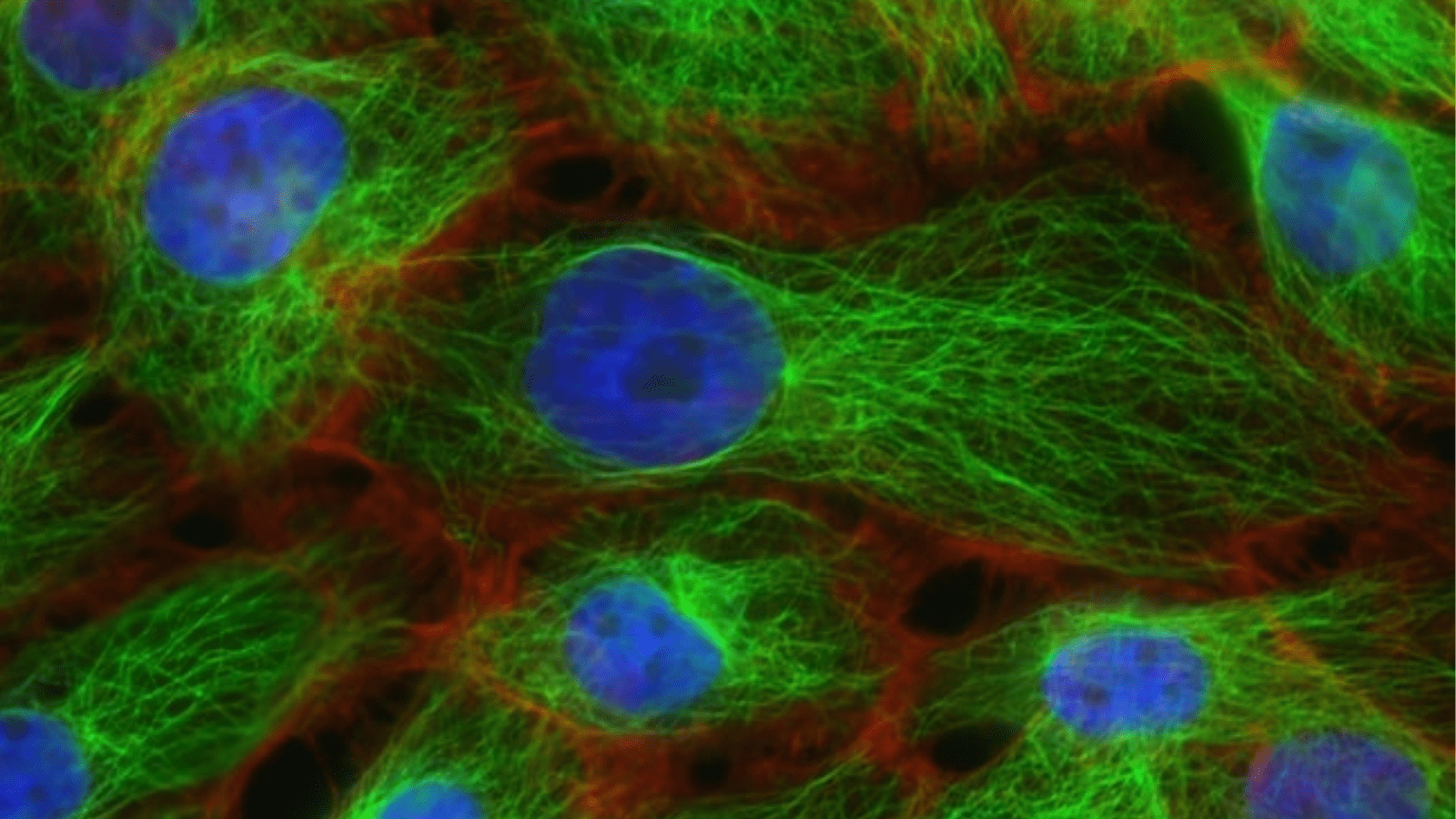
Stem cells are ‘progenitor’ cells that are not yet specialized and can develop into any other cell in your body.
For ED treatment, stem cells can be used to regenerate normal healthy erectile tissue. Stem cells are harvested from your bone marrow – typically from the iliac crest (the back of your bony pelvis) – and then injected into the penis.
How does it work? Stem cells are used in a variety of therapies because they have been found to regenerate, remodel, and repair damaged tissues. It’s believed that they contribute to regeneration by secreting bioactive chemicals that boost healing.
Are stem cell injections effective? They appear to be. One recent review that summarized 8 clinical trials in humans found that stem cell therapy could be effective for long-term improvement in erectile function. Stem cell therapy is one of the few regenerative treatments that is specifically FDA-approved for the treatment of ED.
Vacuum Therapy
Vacuum therapy is used both to create erections suitable for sexual intercourse as well as to stimulate growth and recovery of penile tissue to support healthy erectile function.
How it works: With vacuum therapy, a tube-like device is placed around the penis and connected to a manual or battery-operated pump that creates a pressure vacuum. The negative pressure brings blood into the penis and creates an erection. When used for sex, often a constriction ring is placed at the base of the penis to keep the blood in and to maintain the erection.
Is vacuum therapy effective? Yes, the research finds that the method leads to more satisfying erections. It also seems to have a positive effect on the rehabilitation of penile tissue after prostate surgery.
Intracavernosal “Trimix” Injections
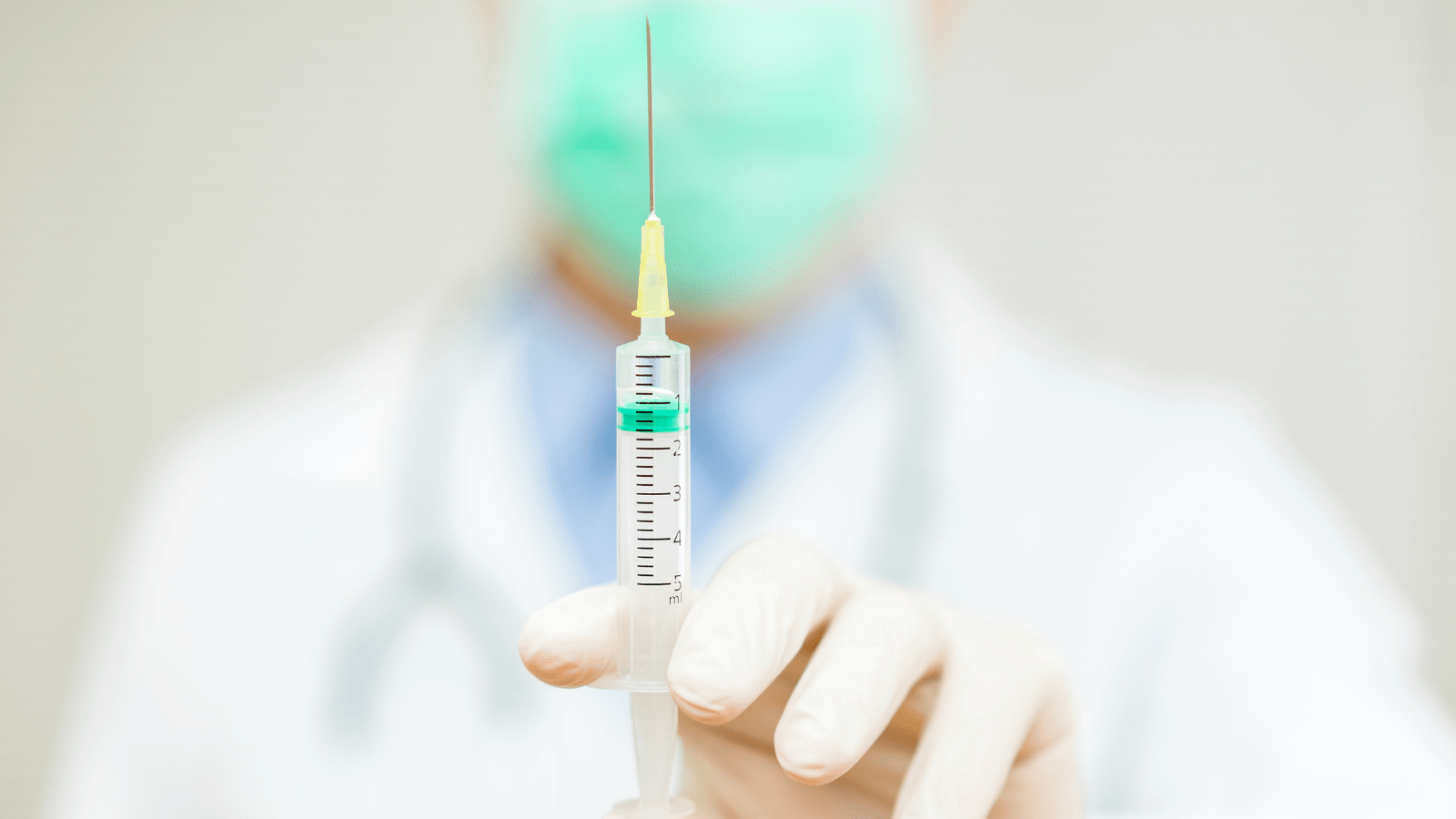
Intracavernosal injections (ICIs), sometimes just called penile injections, involve injecting medication directly into the side of the penis to stimulate an erection. While several different kinds of medication can be used, the most commonly injected medications are papaverine, phentolamine, and prostaglandin E1. When these three drugs are combined, it’s called a “trimix”.
How it works: These medications stimulate vasodilation of blood vessels and relaxation of smooth muscles in the penis to allow increased blood flow and thus make it easier to achieve an erection.
Like oral medications like Viagra and Cialis, penile injection therapy is a short-term treatment that helps men get an erection immediately and lasts for a few hours after injection.
Are Intracavernosal injections effective? Yes. Research has consistently suggested that injection therapy can be as effective as PDE5 inhibitors like Viagra, Cialis, Stendra, Staxyn, or Levitra. Injection therapy is a great option for men who can’t take oral medications due to specific contraindications. Always make sure to take medication under the guidance of a doctor, since overdosing with injection therapy can cause major problems!
New ED Therapies Aren’t Always Better

While the newest, cutting-edge technologies are promising for those with hard-to-treat ED, the fact is that new treatments aren’t always better. Indeed, some of the classic advice on managing ED is as pertinent as ever.
That’s because treating ED requires a comprehensive, systems-based approach. In most cases, lifestyle changes can meaningfully contribute to better sex life.
Here is the less exciting—but still effective—advice I give my VIP clients for better sexual health:
- Exercise. We know that regular exercise is related to erectile function. It also boosts testosterone, which is an important component in healthy sexual function.
- Quit smoking. Men who smoke are about twice as likely to experience sexual dysfunction as those who don’t.
- Drink less. Alcohol is one of the most common causes of ED. Consume less alcohol for better erections.
- Eat a balanced diet. Switching to a healthy diet and caloric intake are associated with improvements in erectile function.
- Maintain a healthy weight. Obesity is a known risk factor for ED and losing excess weight can help treat it.
- Manage your stress. Stress can lower your testosterone and make it harder for you to get hard. Finding ways to cope with your stress can improve your sexual health.
Find the Appropriate ED Treatment for You
These days, ED is almost always treatable thanks to new technology and cutting-edge treatments. But don’t assume ED drugs like Viagra (sildenafil) and Cialis (tadalafil) are the only option for you.
Instead, get a full evaluation to find the cause of your ED. You want to make sure that it isn’t a warning sign of more significant underlying cardiovascular disease.
As a men’s health expert with over 20 years of experience treating erectile dysfunction,I can recommend the most appropriate ED treatment option for your particular case.
Schedule an appointment with me and get your ED treated today!
Schedule a consultation to take control of your testosterone!
Download the Blueprint
Schedule a Call
**************************
 In Male 2.0™, Dr. Tracy Gapin has turned everything we once thought we knew about men’s health and performance upside down. The old model of how to be “a man” is broken. A man who works himself to death. Unfortunately, a man who tries to NOT get sick but isn’t really healthy either. And a man who takes a pill for every ill but is never really cured. That was Male 1.0. Now, imagine being THE MAN ─ owning your performance in the bedroom, the weight room, and the boardroom. Living a fully optimized life. Becoming limitless. This is Male 2.0!
In Male 2.0™, Dr. Tracy Gapin has turned everything we once thought we knew about men’s health and performance upside down. The old model of how to be “a man” is broken. A man who works himself to death. Unfortunately, a man who tries to NOT get sick but isn’t really healthy either. And a man who takes a pill for every ill but is never really cured. That was Male 1.0. Now, imagine being THE MAN ─ owning your performance in the bedroom, the weight room, and the boardroom. Living a fully optimized life. Becoming limitless. This is Male 2.0!
Tracy Gapin, MD, FACS is a board-certified Urologist, world-renowned Men’s Health & Performance Expert, Author, and Professional Speaker. Using state-of-the-art biometric monitoring, nutrition, and lifestyle intervention, Dr. Gapin coaches Fortune 500 executives and evolutionary leaders of business, sports medicine, and high performance. He specializes in cutting-edge precision medicine with an emphasis on epigenetics, providing men with a personalized path to optimizing health & performance. www.GapinInstitute.com
Want more tips to optimize your health? Listen to the latest podcasts. Click HERE
References
Campbell, J. D., Trock, B. J., Oppenheim, A. R., Anusionwu, I., Gor, R. A., & Burnett, A. L. (2019). Meta-analysis of randomized controlled trials that assess the efficacy of low-intensity shockwave therapy for the treatment of erectile dysfunction. Therapeutic Advances in Urology, 11, 1756287219838364. https://doi.org/10.1177%2F1756287219838364
Epifanova, M. V., Gvasalia, B. R., Durashov, M. A., & Artemenko, S. A. (2020). Platelet-rich plasma therapy for male sexual dysfunction: Myth or Reality?. Sexual Medicine Reviews, 8(1), 106-113. https://doi.org/10.1016/j.sxmr.2019.02.002
Giuliano, F. (2004). Control of penile erection by the melanocortinergic system: Experimental evidence and therapeutic perspectives. Journal of Andrology, 25(5), 683-691. https://doi.org/10.1002/j.1939-4640.2004.tb02842.x
He, M., & von Schwarz, E. R. (2020). Stem-cell therapy for erectile dysfunction: a review of clinical outcomes. International Journal of Impotence Research, 33, 1-7. https://doi.org/10.1038/s41443-020-0279-8
ED Myths and Facts: What you need to know

I’m a urologist. That means that I was specially trained in the management of men’s health issues, including low testosterone, prostate health, and erectile dysfunction. This is my passion.
In my 25+ year career, I have found that among all the men’s health issues I manage, erectile dysfunction is one of the most common complaints that brings men to see me.
It’s the bread and butter of my work.
Unfortunately, there’s a ton of misinformation around both what causes ED and how to treat it. Sometimes, that misinformation cause guys to needlessly suffer and avoid seeking guidance and support.
So I want to take this opportunity to dispel some of the most common erectile dysfunction myths and give you the facts. And then I’ll tell you how to get treatment.
Myth #1. “ED isn’t a real health problem.”
Fact: ED can be a sign of much more significant health problems.
Men tend to think of sexual issues as performance issues and not necessarily true health issues. But problems with sexual function are potentially a sign of much bigger issues.
ED is often the initial symptom of vascular disease. The blood supply to the penis is quite small, so any atherosclerosis, or plaque in your arteries, can quickly affect normal blood flow and thus cause issues with normal erectile function.
Erectile dysfunction can be a sign of underlying diabetes, high blood pressure, or other health problems. So think of ED as a “canary in the coal mine” for other potentially serious health conditions. ED can in fact also be associated with early mortality.
I consider ED to be a wake-up call. It should prompt a full evaluation to identify undetected cardiovascular disease or other health issues that need to be addressed.
Myth #2. Erectile dysfunction only happens in older men
Fact: Erectile dysfunction is more common in older men, but it can happen at any age.
Yes, ED is more commonly associated with older men. But younger men can absolutely experience erectile dysfunction, as well. In fact, about 25% of guys under 40 experience ED.
In younger men, ED tends to be more often related to psychological issues or low testosterone, whereas ED in older men is more commonly associated with underlying medical issues such as cardiovascular disease or diabetes.
Myth #3. ED is a normal part of the aging process, so I shouldn’t worry about it
Fact: No one should “settle” for ED.

While ED may be common, we shouldn’t see it as a “normal” part of aging.
It can be caused by a number of underlying health issues – poor blood flow, hormone imbalance, or nerve damage. But these are issues that can be prevented by prioritizing an optimal lifestyle. It’s a health issue. And it can be treated.
There’s no reason you can’t enjoy an active and satisfying sex life as you age. ED may affect lots of men, but that doesn’t mean we should consider it a normal part of the aging process.
Myth #4. ED means you’re not attracted to your partner
Fact: Some people experience ED even when they are very attracted to their partner.
Erectile dysfunction is complex and can be caused by a number of factors. In addition to medical issues such as peripheral vascular disease and low testosterone, it can also be a result of psychological issues like stress and anxiety. Even lifestyle factors and some medications you’re taking can kill your sex life.
So it’s important to realize that ED is not the same as sexual desire. ED doesn’t necessarily cause low libido and vice versa.
Myth #5. ED is caused by tight underwear
Fact: There is no evidence for a connection between your underwear and sexual function.
It’s true that there is a link between tight underwear and infertility. This is because the testicles regulate their temperature by getting closer to, or further from, the body. Tight underwear can keep the testicles to close the body, which can increase their temperatures enough to reduce sperm production.
But infertility is a separate issue from ED. There’s currently no evidence for a link between ED and your underwear.
Myth #6. Any difficulty getting an erection means you have ED
Fact: It’s normal to occasionally have difficulty getting an erection.

There’s a kind of social pressure to be “ready” all the time… but that’s not always how our body works.
Sexuality is complicated and impacted by a lot of factors. Men who are sleep deprived, particularly stressed, or just “not in the mood” may not be able to get an erection on command. That’s actually normal—it doesn’t necessarily mean that they have ED.
ED is diagnosed when a man consistently has difficulty getting or maintaining an erection satisfactory for intercourse.
Myth #7. ED means you have problems in your relationship
Fact: While relationship issues can impact your sexual performance, there are many other potential causes as well.

Most cases of ED have physiologic causes, not psychological ones.
Sure, relationship issues can cause stress, anxiety, which could lead to ED. But relationship issues are usually not the cause of most men’s ED.
Myth #8. ED can’t be fixed
Fact: We have very effective treatment options for ED.
It’s fairly common that men feel like their ED is hopeless and will never get better. The fact is there are many highly effective treatment options available for ED, and almost all cases of ED can be treated. And not just with Viagra!
Myth #9. The only treatment for ED is Viagra or Cialis
Fact: There are many options for treating ED.
Viagra, Cialis, and the other oral medications completely shifted ED treatment by increasing awareness and providing an easily accessible solution. But there are many other treatment options as well. This includes vacuum device, intracavernosal injections, peptide therapy, GAINSWave, PRP (Platelet-rich plasma, or ‘P-shot’), and Testosterone or hormone replacement therapy for men with low testosterone.
It’s also important to realize that lifestyle changes can dramatically improve your sexual function. Focusing on proper nutrition, good sleep quality and duration, exercising, and effectively managing your stress are part of a systems-based approach to health that has been proven to improve erectile function.
Myth #10. ED is too embarrassing to talk about with my doctor
Fact: ED is a very common issue with men today, even in younger men, and you should feel comfortable discussing it with your doctor.
One of the biggest issues with ED and other sexual health issues is that guys don’t like talking about it. It can be awkward. But ED doesn’t mean you’re weak. It doesn’t make you less of a man. It just means you need a little help.
Fact: You can overcome ED
Erectile dysfunction is a real medical condition and it can be serious. If you’re struggling with ED, seek treatment.
But don’t wait for your appointment to make some lifestyle changes that we know help improve erectile function:
- Quit smoking
- Eat a balanced, nutrient-rich diet
- Cut out trans fats, saturated fats, and excessive sugar
- Exercise regularly
- Get enough sleep
If you do those things, you’ll set yourself up for success. If you need help with ED, reach out to me.
Schedule a consultation to discuss ED treatment.
Take the next steps
Schedule a Call
 In Male 2.0™, Dr. Tracy Gapin has turned everything we once thought we knew about men’s health and performance upside down. The old model of how to be “a man” is broken. A man who works himself to death. Unfortunately, a man who tries to NOT get sick but isn’t really healthy either. And a man who takes a pill for every ill but is never really cured. That was Male 1.0. Now, imagine being THE MAN ─ owning your performance in the bedroom, the weight room, and the boardroom. Living a fully optimized life. Becoming limitless. This is Male 2.0!
In Male 2.0™, Dr. Tracy Gapin has turned everything we once thought we knew about men’s health and performance upside down. The old model of how to be “a man” is broken. A man who works himself to death. Unfortunately, a man who tries to NOT get sick but isn’t really healthy either. And a man who takes a pill for every ill but is never really cured. That was Male 1.0. Now, imagine being THE MAN ─ owning your performance in the bedroom, the weight room, and the boardroom. Living a fully optimized life. Becoming limitless. This is Male 2.0!
Tracy Gapin, MD, FACS is a board-certified Urologist, world renowned Men’s Health & Performance Expert, Author, and Professional Speaker. Using state-of-the-art biometric monitoring, nutrition and lifestyle intervention, Dr. Gapin coaches Fortune 500 executives and evolutionary leaders of business, sports medicine, and high performance. He specializes in cutting-edge precision medicine with an emphasis on epigenetics, providing men with a personalized path to optimizing health & performance. www.GapinInstitute.com
Want more tips to optimize your health? Listen to the latest podcasts. Click HERE
References
Fung, M. M., Bettencourt, R., & Barrett-Connor, E. (2004). Heart disease risk factors predict erectile dysfunction 25 years later: the Rancho Bernardo Study. Journal of the American College of Cardiology, 43(8), 1405-1411.
Shamloul, R., & Ghanem, H. (2013). Erectile dysfunction. The Lancet, 381(9861), 153-165.
Yafi, F. A., Jenkins, L., Albersen, M., Corona, G., Isidori, A. M., Goldfarb, S., … & Hellstrom, W. J. (2016). Erectile dysfunction. Nature Reviews Disease Primers, 2(1), 1-20.
Capogrosso, P. M.D., Colicchia, M. M.D., Ventimiglia, E. M.D., Castagna, G. M.D., Clementi, M.C. M.D., Suardi, N. M.D., Castiglione, F. M.D., Briganti, A. M.D., Cantiello, F. M.D., Damiano, R. M.D., Montorsi, F. M.D., Salonia, A. M.D. (2013). One Patient Out of Four with Newly Diagnosed Erectile Dysfunction Is a Young Man—Worrisome Picture from the Everyday Clinical Practice. The Journal of Sexual Medicine, 10(7), 1833-1841.
Parazzini, F., Marchini, M., Luchini, L., Tozzi, L., Mezzopane, R., Fedele, L. (1995). Tight underpants and trousers and risk of dyspermia. Internaitonal Journal of Andrology, 18(3), 137-140.
What is Nrf2? Here’s Everything You Need to Know About the Secret to Aging Well
Feel like you’re just not operating at the level you used to?
People tell us that that happens with age—that our bodies start to break down.
But the most recent science is actually calling into question the inevitability of the symptoms of aging. New research in microbiology, chemistry, and genomics is showing us that those uncomfortable symptoms of aging might not be locked in.
This is where “biohacking” comes from: it’s the idea that you can give your body exactly what it needs to properly repair and rejuvenate itself. The result? Optimized health and performance.
Nrf2 is one of the most exciting discoveries in this area and holds some real promise as an anti-aging agent and as a support for your long-term health. In this article, I’ll explain what it is, what it does, and why it matters for your aging.
What is Nrf2?
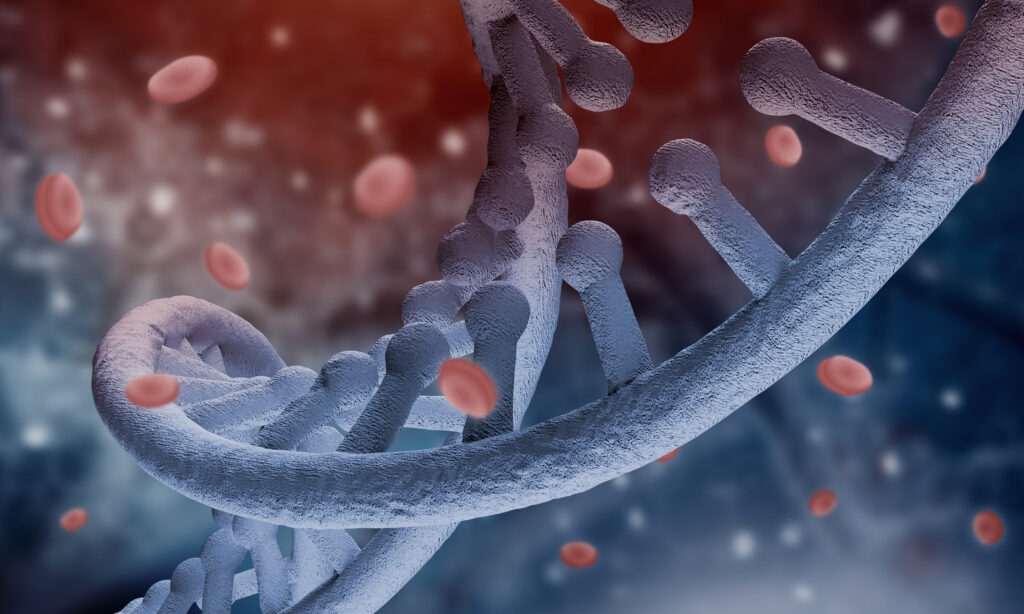
Nrf2, short for “nuclear factor erythroid 2-related factor 2”, is a protein that is found in your cells. It is a type of protein called a “transcription factor”, which means that it is involved in gene expression—activating and deactivating parts of a genetic sequence.
Which genes does Nrf2 affect? It regulates the expression of antioxidant proteins and enzymes, increasing their production to help your body fight off molecules that attack your cells.
Nrf2 has been found to be an important part of your body’s system of regulating metabolism, inflammation, and immune responses.
What’s special about Nrf2?

Nrf2 is a big deal because it could be the key to aging gracefully and healthily.
When you’re young, your body is good at balancing all the needs of your body at the cellular level. But as you age, these important chemical signallers decline. You begin to produce less of the substances that you need to properly regulate your body.
That means that there are fewer of the peptides, proteins, hormones, and enzymes that help your body repair and rejuvenate. Things start to break down.
The result is that your body gets slower at repairing itself. That’s why you feel tired more often, your body takes longer to recover from exercise, and your skin begins to see signs of aging. You might also notice issues with your sleep or even erectile dysfunction.
Oxidative stress contributes to symptoms of aging
At the cellular level, what’s happening is that free radicals are constantly bombarding your cells. The damage caused by these attacks causes your cells to go into a state called oxidative stress, and stop functioning properly.
When you’re young, your body can easily fight free radicals back. But as you get older, your body can’t do this as effectively. That’s when symptoms of aging start getting worse.
Antioxidants fight free radicals and reduce oxidative stress
You’ve probably heard of the health benefits of antioxidants. Some foods are high in antioxidants and that’s why health professionals sometimes encourage you to include them in your diet.
Antioxidants help neutralize free radicals and minimize the damage that they cause. That helps reduce the symptoms of aging.
But antioxidants aren’t very efficient. One antioxidant molecule neutralizes only one free radical. With more and more free radicals, we need more and more antioxidants. At some point, the antioxidants can’t keep up.
What does Nrf2 do?
Nrf2 provides a powerful solution to overcome free radicals. It’s known as the “master regulator” of our body’s antioxidant response.
When Nrf2 is activated, it enters the nucleus and turns on several hundred genes, known collectively as “survival genes.” This, in turn, initiates the production of several of your body’s own powerful enzymes that fight free radicals. These enzymes include catalase, glutathione, and superoxide dismutase (SOD).
These enzymes are much more effective than antioxidants at getting rid of free radicals—they can neutralize over 1 million free radicals a second. What that means is that your body can clean itself out quickly and fewer of your cells get into a state of oxidative stress.
Ultimately, that means you feel fewer symptoms of aging: better energy, better sleep, and even a better sex life.
How do I get Nrf2?

Great, Nrf2 can support my health. How do I get it?
You actually don’t need to get Nrf2—it’s already right there in your cells. It comes pre-installed.
The problem is that it’s not activated. It’s a bit like an engine: it just sits in your cells not doing anything until it’s turned on. That’s what Nrf2 activation therapies do: they get into your cells to turn on Nrf2 so that it can enter the nucleus and work its magic.
Some foods have been shown to activate Nrf2 and the Nrf2 pathway. These have been supported by studies in nutrigenomics—the study of how food influences gene expression and cellular function.
Some Nrf2-activating foods include:
Dark chocolate
Legumes, like lentils, beans, and peas
Vegetables, especially dark leafy greens like spinach and cruciferous vegetables like broccoli, cauliflower, and bok choy
Spices, especially ginger, turmeric, cinnamon, cloves, and yellow mustard
Herbs, like oregano
Red wine
Tea, especially green and white teas
What about Nrf2 supplements? Do they work?
In addition to activating Nrf2 through the diet, there are now supplements that activate Nrf2 and significantly reduce oxidative stress.
These have been extremely well-researched by the scientific community and some of the supplements have very strong evidence supporting their use.
Protandim®, for example, is a supplement designed to activate Nrf2. There have been numerous studies that demonstrate that it improves your body’s antioxidant response capacity. Peer-reviewed, human clinical studies show that it reduces cellular stress in humans by an average of 40 percent in 30 days. Research even suggests that it could be effective in preventing age-related diseases like:
Various types of cancer, like skin and colon cancers
The takeaway for your health: Nrf2 activators could help you feel younger. A men’s health secret.

We often think that there isn’t much we can do about the declines in our bodies that come with age. But science is showing us that that’s not necessarily the case.
There actually may be ways that we can give our body what it needs to better regulate, repair, and rejuvenate itself.
Nrf2 appears to be one of those ways. Activating the Nrf2 pathway could be a relatively simple—but powerful—way to help you feel younger again.
It might be as easy as making good diet choices or taking a supplement.
Schedule a consultation to learn how to personalized health advice so you can live your life to the fullest.
Ready to take the next steps?
Download the Blueprint
Schedule a Call
**************************
 In Male 2.0™, Dr. Tracy Gapin has turned everything we once thought we knew about men’s health and performance upside down. The old model of how to be “a man” is broken. A man who works himself to death. Unfortunately, a man who tries to NOT get sick but isn’t really healthy either. And a man who takes a pill for every ill but is never really cured. That was Male 1.0. Now, imagine being THE MAN ─ owning your performance in the bedroom, the weight room, and the boardroom. Living a fully optimized life. Becoming limitless. This is Male 2.0!
In Male 2.0™, Dr. Tracy Gapin has turned everything we once thought we knew about men’s health and performance upside down. The old model of how to be “a man” is broken. A man who works himself to death. Unfortunately, a man who tries to NOT get sick but isn’t really healthy either. And a man who takes a pill for every ill but is never really cured. That was Male 1.0. Now, imagine being THE MAN ─ owning your performance in the bedroom, the weight room, and the boardroom. Living a fully optimized life. Becoming limitless. This is Male 2.0!
Tracy Gapin, MD, FACS is a board-certified Urologist, world renowned Men’s Health & Performance Expert, Author, and Professional Speaker. Using state-of-the-art biometric monitoring, nutrition and lifestyle intervention, Dr. Gapin coaches Fortune 500 executives and evolutionary leaders of business, sports medicine, and high performance. He specializes in cutting-edge precision medicine with an emphasis on epigenetics, providing men with a personalized path to optimizing health & performance. www.GapinInstitute.com
Want more tips to optimize your health? Listen to the latest podcasts. Click HERE
References
Houghton, C. A., Fassett, R. G., & Coombes, J. S. (2016). Sulforaphane and other nutrigenomic Nrf2 activators: can the clinician’s expectation be matched by the reality?. Oxidative Medicine and Cellular Longevity, 2016. https://doi.org/10.1155/2016/7857186
Hybertson, B. M., Gao, B., Bose, S. K., & McCord, J. M. (2011). Oxidative stress in health and disease: the therapeutic potential of Nrf2 activation. Molecular Aspects of Medicine, 32(4-6), 234-246.
Lim, J. L., der Pol, V., Susanne, M. A., Baron, W., McCord, J. M., De Vries, H. E., & Van Horssen, J. (2016). Protandim protects oligodendrocytes against an oxidative insult. Antioxidants, 5(3), 30. https://doi.org/10.3390/antiox5030030
Men, What is stress doing to your Testosterone?
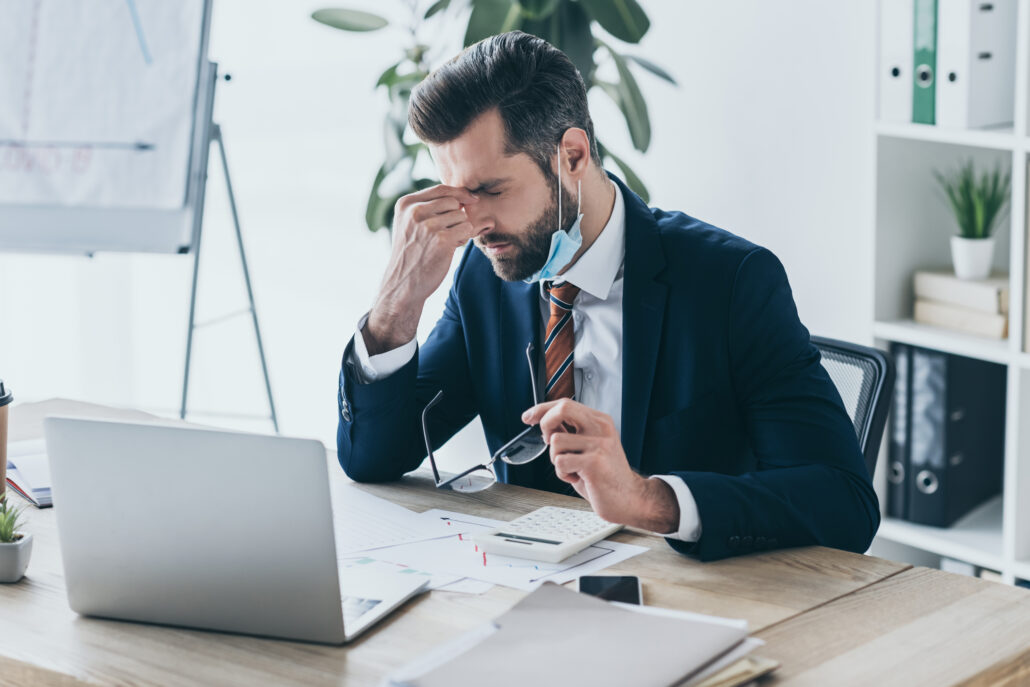
Stress is ubiquitous—it affects all of us in one way or another.
Low level stress that you can easily overcome is usually not bad for you. In fact, it can even be good for you. Stress can motivate you, improve your athletic performance, and help you adapt to your environment.
But long-term or excessive stress can have a profoundly negative effect on your health and even reduce your lifespan. Research shows that stress reduces testosterone levels, which may be one reason why stress is strongly linked with weight gain, poor sleep, and erectile dysfunction (ED).
Getting your stress under control is one of the most important ways to achieve a healthy, satisfying life. In this article, I’ll dive into exactly what stress is and what it is doing to your health, testosterone, and sex life. Then I’ll explain exactly how to beat it.
What is Stress
We throw the term around all the time, but what exactly is stress?
Stress is a feeling of psychological strain or pressure. It occurs from our own perception of an event or stressor as threatening or challenging to us.
To be clear, stress is not the actual events or stressors in your life. Your response to those stressors is what triggers your feeling of stress.
Psychologists sometimes classify stressors into four types (1):
- Ambient stressors, like noise in a cafe or traffic
- Hassles or micro stressors, like not being able to find your keys
- Major life events, like getting fired, getting married, or having a child
- Crises or catastrophes, like a natural disaster
These have different effects on your overall well-being, but even hassles or micro stressors, when they are constant, can create levels of stress that ultimately affect our health.

How Stress Affects Health
Stress has a massive physiological effect on our bodies. When we feel stress, our brain sends out a signal to our body and activates a “fight or flight” response. Our pupils dilate, our heart rate increases, and our body releases a number of hormones and chemicals to get us ready to react, such as adrenaline, endorphins, and cortisol.
This response is useful if we’re encountering a situation where we really do need to fight or get away. Athletes, soldiers in combat, or even firefighters benefit from this reaction to stressful situations.
But for most of us, this bodily response is unnecessary. And, when stress is chronic, occurring over a long period of time, these effects can be toxic and dangerous to our health. The amount of stress that you have, and your stress resiliency, can even predict how long you will live.
Risk of disease
One of the most worrying effects of stress on our health is its relationship to disease; research shows that chronic, severe stress vastly increases a person’s risk for several chronic health conditions.
For example, there’s significant evidence that stress increases the risk of cardiovascular diseases like heart attack, stroke, high blood pressure, and hypertension as well as diabetes and certain types of cancer (2, 3, 4).
Stress is also clearly associated with mental illness, including depression, schizophrenia, and anxiety (5, 6).
Immune Function
Stress has been found to reduce immune function (7). Research has demonstrated that stress can cause a person to be more susceptible to illnesses like colds (8). Scientists have suggested that stress can affect immune system function at the cellular level, changing the body’s chemical immune response. They’ve found that individuals that report more stress tend to have lower immunity and increased inflammation (7).
Poor lifestyle habits
The way that we cope with stress may also have an impact on our health. When individuals cope with stress by consuming excessive alcohol, smoking, or binge-eating, the result is poorer health. Stress can cause some people to engage in unhealthy habits as a way to cope with the psychological discomfort (9).
Stress can affect your genes
Epigenetics refers to a process whereby gene expression, or activity, is altered by the environment although the actual genetic sequence is not changed.
Researchers have found that stress can cause epigenetic changes resulting in negative health outcomes.
- One study found that major psychological stressors, like physical abuse or trauma from experiences with war, cause DNA methylation on some genes that are associated with psychological disorders (10).
- Another study found that excessive cortisol production, which occurs with stress, is associated with generally less DNA methylation than those with less cortisol in their system (11).
- In a third study, mice given corticosterone, a chemical similar to the stress hormone cortisol, were found to have altered gene expression in genes that are associated with hormone balance (12).
What does all this mean? It means that stress may be able to actually change how your genes are expressed such that you are predisposed to have worse health outcomes.
How Stress Affects Testosterone and Erectile Dysfunction
Stress has such a powerful effect on us in part because it’s psychological. It affects the hormonal balance in our body, but it also affects our mental health. Both of these things can impact sexual function and performance.
One of the ways that stress impacts sexual function is through testosterone.
What is testosterone?
Testosterone is often called the “male sex hormone”. It plays an important role in several bodily functions for men, including the initial development of the testes and prostate. In adults, testosterone has many surprising effects including being critical to the production of sperm and semen, healthy libido, and even muscular development.
Many men suffer from “low T”. What is low T? It’s a condition where a man’s body does not produce sufficient testosterone for optimal function.
Low testosterone can be caused by various lifestyle factors, including diet, exercise, and poor sleep. Age alone may also be a factor since the production of testosterone tends to decrease with age. Men over the age of 50 tend to experience a 1% decline in testosterone levels every year.
Some of the symptoms of low testosterone include:
- Erectile dysfunction
- Low fertility
- Loss of muscle mass
- Anxiety and depression
- Weight gain
- Low libido and sex drive
- Weaker bones
- Reduced energy
- Less body hair
- Foggy brain
Stress has been shown to directly affect testosterone levels. When you’re stressed, your body releases the stress hormone cortisol. And high cortisol levels crush your testosterone. Research has found a clear association between high cortisol levels and low levels of testosterone (13).
The lower testosterone levels caused by stress, in turn leads to low energy, weight gain, loss of mental focus, and loss of sexual function.
Stress Causes Erectile Dysfunction
Stress is one of the most common causes of ED (14).
Sexual function depends on the complex interaction between physiological and psychological factors. Stress affects both. It causes your body to produce less testosterone, which contributes to difficulty getting an erection. It can also affect the psychological processes associated with sexual arousal.
Finding ways to effectively cope with stress is an essential part of creating a healthy lifestyle, achieving optimal testosterone levels, and supporting a fulfilling sex life.
Reduce Stress to Improve your Health, Testosterone, and Sex Life
Great, we need to address stress for better health, more testosterone, and great sex.
But how?
Develop stress resiliency
This is one of the most important things that you can do to reduce stress: develop ways to cope effectively with stress and create stress resiliency.
Stress resiliency refers to your ability to respond to and cope with the stressors that you face in everyday life. Creating resilience to stress can help you experience it less often, for less time, and thus reduce the negative health effects.
To develop stress resiliency, try the following.
- Start to think of stress as an opportunity for growth. Ask yourself: What is the stressor? Why am I stressed about it? Where can I feel the stress in my body? What can I do right now to cope and calm myself down? What can I learn to grow from it?
- Develop healthy coping habits. These include exercise, meditation, breathing techniques, hobbies you enjoy, and even sex.
- Sleep! Sleep is critical for optimal health, but especially when it comes to stress resilience. Good quality sleep allows your body to heal and recover. And good quality sleep lowers cortisol.
- Get social support. Engaging with the important people in your life is one of the most effective ways to cope with stress. Even giving social support can improve your stress.
- Focus on eating good quality food. The foods you eat can directly promote or reduce inflammation in your body, and thus affect cortisol production.
Exercise
Exercise is one of the most effective ways to beat back stressors (15). Research shows that people who exercise consistently are better able to develop stress resilience and reduce the health consequence of stress (16).

Meditation
Research is increasingly finding the benefits of meditation on everything from cognitive health to physical energy levels. Meditation also turns out to be an effective way to cope with life stressors, even if you do it for just five to ten minutes a day.
The benefits of meditation include:
- Stress reduction
- Better sleep
- Feeling relaxed
- Better focus and attention
- More positive mood
- Reductions in depression and anxiety.
Solutions for Erectile Dysfunction and Low T
Do you think your stress is lowering your testosterone? Here are a few ways that you can increase your testosterone naturally.
Lose weight
Body fat and testosterone are connected. When guys have higher body fat levels, their bodies create and release less testosterone. And low testosterone causes your body to store more energy as fat. It’s a vicious cycle.
However, you can reverse it and turn it into a positive cycle. When you start to lose weight, you’ll find that your testosterone levels naturally increase. And, as the testosterone in your body increases, you’ll find it easier and easier to lose more weight (17). Losing weight will also help you to stop ED in its tracks.
If you are overweight, make this a priority: lose weight to naturally boost your testosterone. improve sexual function, and improve stress.
Exercise
It’s not only effective for coping with stress, but also for increasing testosterone. Numerous studies have found that guys that exercise more tend to have more testosterone.
The best exercise to boost testosterone is strength training and lifting weights. Studies have found that guys of all ages get a boost of T from weight training (18). Moderate cardio exercise is also great.
And for another added benefit, exercise is an effective way to prevent and help treat ED.
Testosterone replacement therapy (TRT)
Testosterone hormone therapy can be an effective treatment for some guys that suffer from low T. Testosterone therapy can be given topically, by subcutaneous or intramuscular injection, pellets, or more recently oral medication. Some of the benefits of TRT include (19):
- Improved energy
- Better sexual function and sex drive
- Increased endurance
- Enhanced ability to gain lean muscle mass
- Increased mood and energy
- Improved cognitive function
There can be risks of testosterone replacement therapy, so make sure you consult with a doctor specialized in men’s health and hormone therapy before deciding whether it could be right for you.
Precision Medicine
These recommendations will help the majority of men reduce stress and improve their health.
But everyone is different. Every man obviously has unique genetics, and thus responds to his environment differently. This is epigenetics.
Why should you care? There may be things that you should be doing to reduce stress and get healthy that wouldn’t work for other men. Whether it be
Precision medicine is a way to get a health plan tailored to your individual genetic makeup. If you’re suffering from stress, low T, or ED, look for solutions designed specifically for you and your genes.

Conclusion: Don’t Let Stress Get You Down
Everyone experiences stress. If stress becomes chronic, and you lose your ability to cope with it, stress can crush your health, leading to weight gain, low testosterone levels, poor energy, and increased risk of erectile dysfunction.
But when you have effective coping mechanisms and view stress as helpful not harmful, you can overcome it and rise to the occasion. Learning to beat stress will help you boost your immune system, lose weight, feel healthier, and enjoy the benefits of higher testosterone.
If you’re concerned about what stress may be doing to your health and testosterone levels, schedule a consultation to learn how to personalized health advice so you can live your life to the fullest.
 In Male 2.0™, Dr. Tracy Gapin has turned everything we once thought we knew about men’s health and performance upside down. The old model of how to be “a man” is broken. A man who works himself to death. Unfortunately, a man who tries to NOT get sick but isn’t really healthy either. And a man who takes a pill for every ill but is never really cured. That was Male 1.0. Now, imagine being THE MAN ─ owning your performance in the bedroom, the weight room, and the boardroom. Living a fully optimized life. Becoming limitless. This is Male 2.0!
In Male 2.0™, Dr. Tracy Gapin has turned everything we once thought we knew about men’s health and performance upside down. The old model of how to be “a man” is broken. A man who works himself to death. Unfortunately, a man who tries to NOT get sick but isn’t really healthy either. And a man who takes a pill for every ill but is never really cured. That was Male 1.0. Now, imagine being THE MAN ─ owning your performance in the bedroom, the weight room, and the boardroom. Living a fully optimized life. Becoming limitless. This is Male 2.0!
Tracy Gapin, MD, FACS is a board-certified Urologist, world renowned Men’s Health & Performance Expert, Author, and Professional Speaker. Using state-of-the-art biometric monitoring, nutrition and lifestyle intervention, Dr. Gapin coaches Fortune 500 executives and evolutionary leaders of business, sports medicine, and high performance. He specializes in cutting-edge precision medicine with an emphasis on epigenetics, providing men with a personalized path to optimizing health & performance. www.GapinInstitute.com
Want more tips to optimize your health? Listen to the latest podcasts. Click HERE
References
- Wheaton, B., & Montazer, S. (2010). Stressors, stress, and distress. A handbook for the study of mental health: Social contexts, theories, and systems, 171-199.
- Dimsdale, J. E. (2008). Psychological stress and cardiovascular disease. Journal of the American College of Cardiology, 51(13), 1237-1246.
- Harris, M. L., Oldmeadow, C., Hure, A., Luu, J., Loxton, D., & Attia, J. (2017). Stress increases the risk of type 2 diabetes onset in women: A 12-year longitudinal study using causal modelling. PloS one, 12(2), e0172126.
- Moreno-Smith, M., Lutgendorf, S. K., & Sood, A. K. (2010). Impact of stress on cancer metastasis. Future Oncology, 6(12), 1863-1881.
- Bartolomucci, A., & Leopardi, R. (2009). Stress and depression: preclinical research and clinical implications. PloS one, 4(1), e4265.
- Corcoran, C., Mujica-Parodi, L., Yale, S., Leitman, D., & Malaspina, D. (2002). Could stress cause psychosis in individuals vulnerable to schizophrenia?. CNS Spectrums, 7(1), 33.
- Segerstrom, S. C., & Miller, G. E. (2004). Psychological stress and the human immune system: A meta-analytic study of 30 years of inquiry. Psychological Bulletin, 130(4), 601.
- Cohen, S., Doyle, W. J., Skoner, D. P., Rabin, B. S., & Gwaltney, J. M. (1997). Social ties and susceptibility to the common cold. JAMA, 277(24), 1940-1944.
- Steptoe, A., Wardle, J., Pollard, T. M., Canaan, L., & Davies, G. J. (1996). Stress, social support and health-related behavior: a study of smoking, alcohol consumption and physical exercise. Journal of Psychosomatic Research, 41(2), 171-180.
- Mulligan, C. J. (2016). Early environments, stress, and the epigenetics of human health. Annual Review of Anthropology, 45, 233-249.
- Glad, C. A., Andersson-Assarsson, J. C., Berglund, P., Bergthorsdottir, R., Ragnarsson, O., & Johannsson, G. (2017). Reduced DNA methylation and psychopathology following endogenous hypercortisolism–a genome-wide study. Nature: Scientific Reports, 7, 44445.
- Wein, H. (2010). Stress Hormone Causes Epigenetic Changes. NIH Research Matters. https://www.nih.gov/news-events/nih-research-matters/stress-hormone-causes-epigenetic-changes
- Rubinow, D. R., Roca, C. A., Schmidt, P. J., Danaceau, M. A., Putnam, K., Cizza, G., … & Nieman, L. (2005). Testosterone suppression of CRH-stimulated cortisol in men. Neuropsychopharmacology, 30(10), 1906-1912.
- Rosen, R. C. (2001). Psychogenic erectile dysfunction: classification and management. Urologic Clinics of North America, 28(2), 269-278.
- Bond, D. S., Lyle, R. M., Tappe, M. K., Seehafer, R. S., & D’Zurilla, T. J. (2002). Moderate aerobic exercise, T’ai Chi, and social problem-solving ability in relation to psychological stress. International Journal of Stress Management, 9(4), 329-343.
- Hsu, Y. C., Tsai, S. F., Yu, L., Chuang, J. I., Wu, F. S., Jen, C. J., & Kuo, Y. M. (2016). Long-term moderate exercise accelerates the recovery of stress-evoked cardiovascular responses. Stress, 19(1), 125-132.
- Yassin, A. A., & Doros, G. (2013). Testosterone therapy in hypogonadal men results in sustained and clinically meaningful weight loss. Clinical Obesity, 3(3-4), 73-83.
- Craig, B. W., Brown, R., & Everhart, J. (1989). Effects of progressive resistance training on growth hormone and testosterone levels in young and elderly subjects. Mechanisms of Ageing and Development, 49(2), 159-169.
- Osterberg, E. C., Bernie, A. M., & Ramasamy, R. (2014). Risks of testosterone replacement therapy in men. Indian journal of urology: IJU: journal of the Urological Society of India, 30(1), 2.
**************************
What to Ask Your Doctor Before Starting Testosterone

Men everywhere are suffering with plummeting testosterone levels. A recent study showed that testosterone levels have declined over 30% in the last 30 years.[1] It has become such a problem that research now indicates that 1 in 4 men over the age of 30 has low levels of testosterone.[2]
And declining testosterone levels are associated with significant health issues. Here are just a few symptoms men experience with low testosterone:
- Low sex drive
- Erectile dysfunction
- Weight gain, especially around the midsection
- Loss of muscle mass
- Fatigue and irritability
- Loss of mental focus
- Hair loss
- Loss of bone density
- Anxiety and depression
Does any of this sound familiar?
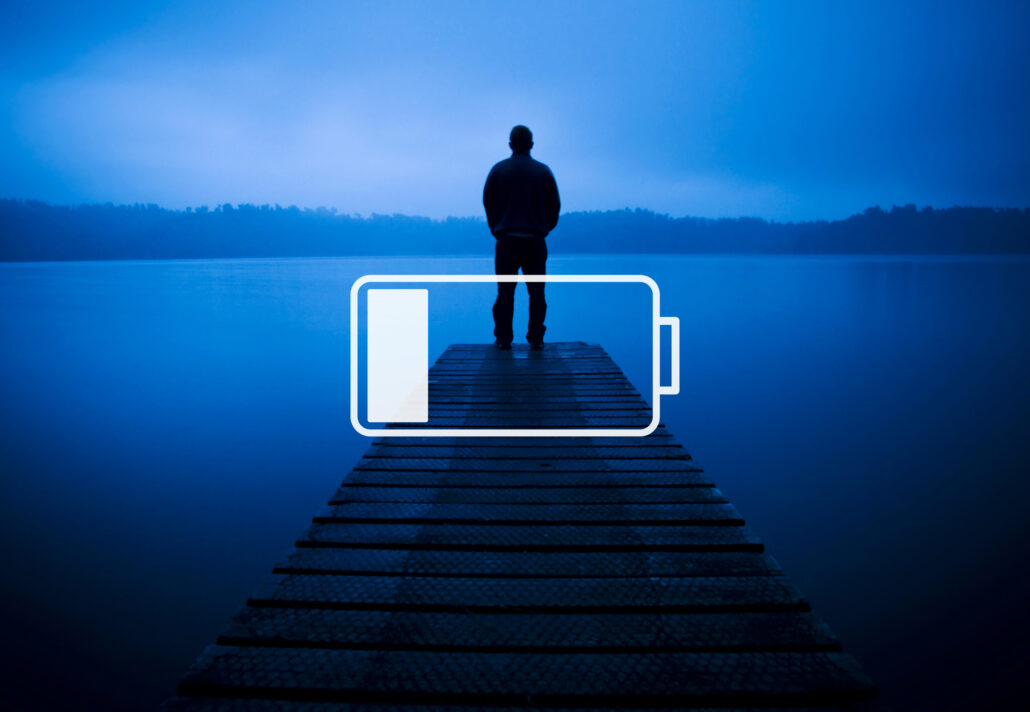 https://drtracygapin.com/blueprint
https://drtracygapin.com/blueprint
When my patients complain that they don’t quite feel like themselves, I find they often have low testosterone. One reason men fail to recognize the issue is because the symptoms of low testosterone will often develop slowly over time.
Men will often come to see their doctor when they struggle with erectile dysfunction, but low testosterone goes far beyond the bedroom. Having a good level of testosterone is vital for all aspects of a man’s health and well-being.
If you suffer from any of the aforementioned symptoms, it’s time to get your testosterone levels checked by a doctor. In preparation for this visit, here are some key questions you should consider.
How Do I Know if I’m Low in Testosterone?
Testosterone is a hormone produced primarily in the testes for men (and at lower levels, in the ovaries for women), but small amounts are also produced by the adrenal glands. Testosterone is part of the endocrine system and its release and regulation is controlled by the brain’s pituitary gland and hypothalamus.
To test your testosterone levels, your doctor will run some blood work, usually in the morning since that is when your hormone levels are at their highest. “Low testosterone”, or hypogonadism, occurs when a man’s level falls below optimal levels.
This brings up a critical question: “What is optimal?!”
Most labs define the lower limit of “normal” testosterone levels to be anywhere from 250 to 350 ng/dL, depending on the lab. The problem with this is there is a massive difference between what is considered clinically “normal” and what is optimal – i.e. what men need to actually experience the benefits of healthy testosterone levels. We’ll cover this huge topic in another blog post, but suffice it to say that men typically need much higher serum testosterone levels than what the clinically “normal” range suggests.
What Causes Low Testosterone?
A man’s testosterone peaks in early adulthood and naturally reduces as he ages. Once he enters his 30s, his levels begin to decline about 1 to 2 percent each year. Some men don’t start noticing the effects of this decrease until they hit the age of 50, but there are others who start to show symptoms even a decade or two earlier.
In addition to age, there are a number of potential causes for low testosterone. Injury or infection to the testes and malfunction of the pituitary gland can cause low testosterone, and diseases like obesity, diabetes and cardiovascular disease are all strongly linked to testosterone deficiency. Endocrine disruptors – chemicals and toxicants in our environment – are clearly a major culprit as well.
Low levels of vital nutrients like zinc or Vitamin D have also been found to correlate with low testosterone. Certain medications can lower testosterone, including asthma inhalers, antidepressants, and antihistamines, as well as chemotherapy.[3] And a number of lifestyle factors, such as smoking, drug abuse, poor sleep, poor diet, and obesity, can lead to low hormone levels.
How is Low Testosterone Treated?
There are a few important concepts to understand before diving into treatment options for men with testosterone deficiency. First it’s key to recognize that treatment requires a comprehensive approach. It’s never as simple as just getting testosterone therapy. It’s critical to be aware that there’s no magical one-size-fits-all solution that works for every man. Treatment varies depending on each man’s underlying health issues, genetics, symptoms, and goals.
A key aspect of addressing low testosterone is to address underlying health issues and develop healthy lifestyle habits. Losing weight has been shown to directly improve testosterone levels. Research shows that exercise, especially weight training or high-interval training, naturally boosts testosterone.[4] Proper nutrition and sleep are critical aspects of a comprehensive approach to overcoming low testosterone and its associated symptoms. Check out the MALE 2.0 Blueprint to learn how to start incorporating healthy habits into your daily life.
Another common approach is hormone replacement therapy (HRT). Hormone replacement therapy involves artificially raising your testosterone levels via a gel, skin patch, injection or hormone pellet implants.
What Are the Benefits of Hormone Replacement Therapy?
A number of studies back up the claim that testosterone replacement therapy can provide men with real benefits. Here are just a few examples, according to a recent academic review:[5]
- Muscle gain and improved strength: Several studies found testosterone replacement therapy improves men’s body composition, decreases fat, and increases lean body mass and muscle strength.
- Increased bone density: Testosterone therapy has been shown to increase bone density, especially among elderly men, which puts them at a reduced risk of injury.
- Improved sex drive: Testosterone replacement therapy increases men’s self-reported libido, as well as the frequency of sexual acts.
- Improved cognitive functioning: One study found older men’s risk for Alzheimer’s disease decreased by 26% for each 10-unit increase in free testosterone. Additional studies found testosterone improves men’s spatial, mathematical, and verbal reasoning, as well as their memory.
- Improved mood and quality of life: Men who receive testosterone therapy report an increase in mood and well-being and a decrease in fatigue and irritability.
What Are the Risks of Hormone Replacement Therapy?
Clearly testosterone replacement therapy has its benefits, but it is important to realize it is not a panacea. Such therapy is considered most beneficial when used short-term to help your body get back on track or to treat an underlying issue like hypogonadism. But know that like all treatments, this hormone therapy comes with a number of risks and side effects that must be considered.
Some side effects may include:
- Acne and oily skin
- Breast enlargement or tenderness (rare if treated properly)
- Shrinkage of the testicles
- Hair loss (rare)
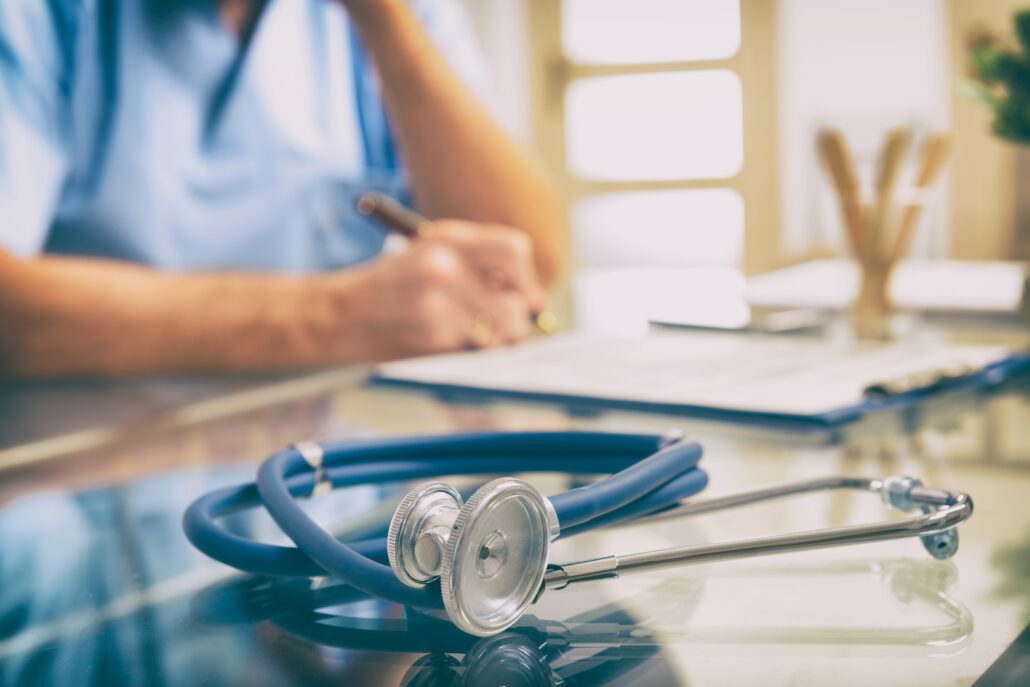
Additional Questions To Ask Your Doctor Before Starting HRT
So you’ve decided to proceed with testosterone therapy. First, be aware that you should never attempt testosterone therapy alone – it should always be done under a doctor’s supervision. But before you start, here are some key questions you should ask your doctor before embarking on a testosterone treatment plan:
- What Are Your Doctor’s Qualifications?
- What expertise and experience does the doctor have in treating men’s health issues generally, and testosterone replacement therapy more specifically?
- How long have they been practicing this approach?
- Given that the science of HRT (hormone replacement therapy) is consistently evolving, how does the doctor stay up-to-date on the topic?
- Do they attend conferences, read scientific journal articles, take training courses?
- Am I a Good Candidate for HRT?
- What evidence is there that I need testosterone replacement therapy?
- If there is evidence, what potential causes does your doctor suspect?
- Do I have certain medical conditions (like sleep apnea or an enlarged prostate) that make me a bad candidate for HRT?
- Can I Boost My Testosterone Naturally?
- Are there things in my medical history or lifestyle that could be changed to improve my testosterone naturally?
- Are there certain foods the doctor recommends to boost testosterone?
- Are there certain supplements the doctor recommends?
- How does sleep quality affect testosterone?
- How does alcohol affect testosterone?
- What changes in my exercise routine can I make to boost my testosterone?
- What Type of Treatment Does the Doctor Prefer?
- What type of HRT does the doctor prefer (e.g., gel, injection, implant) and why?
- How will the doctor determine which hormone dose is right for me?
- How do they track results?
- What is the Expected Cost of HRT?
- Does insurance typically cover the cost of the treatment?
- What will my out of pocket expenses be?
- How long will treatment take?
- What Side Effects Are Expected?
- Will there be pain or inflammation at the injection or implant site?
- What adverse reactions should I look out for?
- What Improvements Can I Expect to See?
- What symptoms should I expect to see improvements on after starting treatment?
- How long will it take before I see results?
- How often will I follow up with my doctor?
- Will the doctor monitor my progress through routine blood tests or other means?
CONCLUSION
If you’re struggling with weight gain, low energy, fatigue, diminished sex-drive, or performance issues in the bedroom, know that it doesn’t have to be that way. You can overcome these issues and become unstoppable TODAY!
It’s time to get empowered to take control of your health. Unlock the code to peak performance with the Male Method™ to regain your energy, focus and confidence to feel like a man again.
We take a whole-body, epigenetic approach to health, focusing on all inputs and how they affect the human system. With the Male 2.0 Method, we utilize science-based precision medicine, personalizing your health based on your unique genetic blueprint. No more guessing!
We utilize cutting-edge age management protocols to reverse the aging process and expand longevity. And we track and leverage your biometric data using state-of-the-art wearable technology to truly optimize your health.
Ready to take the next steps?
Download the Blueprint
Schedule a Call
**************************
**************************
 In Male 2.0™, Dr. Tracy Gapin has turned everything we once thought we knew about men’s health and performance upside down. The old model of how to be “a man” is broken. A man who works himself to death. Unfortunately, a man who tries to NOT get sick but isn’t really healthy either. And a man who takes a pill for every ill but is never really cured. That was Male 1.0. Now, imagine being THE MAN ─ owning your performance in the bedroom, the weight room, and the boardroom. Living a fully optimized life. Becoming limitless. This is Male 2.0!
In Male 2.0™, Dr. Tracy Gapin has turned everything we once thought we knew about men’s health and performance upside down. The old model of how to be “a man” is broken. A man who works himself to death. Unfortunately, a man who tries to NOT get sick but isn’t really healthy either. And a man who takes a pill for every ill but is never really cured. That was Male 1.0. Now, imagine being THE MAN ─ owning your performance in the bedroom, the weight room, and the boardroom. Living a fully optimized life. Becoming limitless. This is Male 2.0!
Tracy Gapin, MD, FACS is a board-certified Urologist, world renowned Men’s Health & Performance Expert, Author, and Professional Speaker. Using state-of-the-art biometric monitoring, nutrition and lifestyle intervention, Dr. Gapin coaches Fortune 500 executives and evolutionary leaders of business, sports medicine, and high performance. He specializes in cutting-edge precision medicine with an emphasis on epigenetics, providing men with a personalized path to optimizing health & performance. www.GapinInstitute.com
Want more tips to optimize your health? Listen to the latest podcasts. Click HERE
Everything You Need to Know About Viagra and Cialis

Are you struggling with performance issues in the sack?
If so, you are not alone. Erectile dysfunction (ED) refers to the inability to get or maintain an erection and unfortunately, this issue is on the rise (no pun intended). In 1995, 152 million men worldwide experienced ED, and that number is expected to swell to 322 million by the year 2025.[1]
As shocking as these statistics are, here’s another one: 75 percent of men diagnosed with ED do not seek out treatment.[2]
Why is this the case? One reason is that men underestimate the prevalence of ED and fear the stigma associated with it. Another is that most assume only older men suffer from ED—that’s just not true. Yes, ED is more common among older men (with 50 percent of men aged 40-70 experiencing ED), but research shows the prevalence of ED in young men might be as high as 30 percent.[3]
The good news is you don’t have to suffer in silence. There are many viable treatments out there to help you “rise to the occasion.” These include ultrasound therapy, priapus p-shots, testosterone replacement hormone therapy, and exercises designed specifically to help erectile dysfunction. Another excellent option is oral medications, like Viagra and Cialis. Because these medications have been around for a long time, a great deal is known regarding their effectiveness and side effects.
How Do Erectile Dysfunction Medications Work?
To understand how ED drugs work, you first need to know why ED happens in the first place. Although ED has several causes, the most common is vascular dysfunction.
Whenever you start to feel hot and heavy, your brain releases certain hormones into your bloodstream. These chemical messengers tell your penis its show time and help it to develop an erection. One of these released chemicals—nitric oxide—is a vasodilator, which is just a fancy way of saying it relaxes your blood vessels and allows them to widen, thereby increasing blood flow. The greater the blood flow, the stronger the erection.
But what happens if your blood vessels don’t fully relax or they are narrow due to plaque buildup? In those cases, you may need a drug to help your vessels relax—essentially a chill pill for your penis. That is where Viagra and Cialis come in.
Both of these medications belong to a class of drugs called PDE5 inhibitors. PDE5 inhibitors work their magic by relaxing tight blood vessels and allowing more blood to flow to certain parts of the body, including the penis. And they have another benefit too. According to Dr. Harry Fisch, urology professor and author of Size Matters, these drugs also reduce the recovery time it takes to achieve a second erection, which is helpful for the 40 percent of men who suffer from premature ejaculation.[4] Lastly, these drugs have a psychological benefit because they help men suffering with performance anxiety gain their confidence back.

Contrary to popular belief, ED drugs do not enhance the male libido and they rarely result in erections in the absence of sexual stimulation. “The biggest misconception is that these drugs are an on/off switch for erections,” says Dr. Louis Liou, chief urologist at Cambridge Health Alliance in Boston.[5] “You need to be with your partner and have foreplay. Don’t take it, do the taxes or the dishes, and then meet at the bedroom thinking you’ll be ready to go. It’s not like that.”
ED medications only work in conjunction with sexual stimulation. That’s because they rely on nitric oxide, and as you learned earlier, nitric oxide only gets released during sexual arousal. ED drugs essentially provide a super boost for your naturally occurring nitric oxide, which in turn leads to greater blood vessel relaxation and blood flow. Without sexual stimulation, there is no nitric oxide and ED medications have nothing to work with. So the pump has to be primed, but once it is, ED medications will boost your flow.
How Do Viagra and Cialis Differ?
Although Viagra and Cialis both increase blood flow to the penis, there are important distinctions.
Viagra, the brand name for sildenafil, was the first oral pill to receive FDA approval for treating ED in 1998. Because it has been on the market the longest, it is often doctors’ first drug of choice when treating patients with ED. The typical dosage recommended is 50mg, although it can be reduced to 25mg or increased to 100mg, if needed.
Viagra has an effectiveness rate that ranges from 77 percent (50 mg) to 84 percent (100 mg).[6] It requires 30 to 60 minutes to begin working and the effect can linger up to 24-36 hours. Viagra is taken on an as needed basis, which means its use requires a bit of planning. If you want complete spontaneity, this may not be the drug for you.
In 2003, Cialis, the brand name for tadalafil, was also approved by the FDA to treat ED. Cialis can be used like Viagra as needed at a higher dose (typically 20 mg), or can be taken daily at a lower dose (typically 5 mg). When taken daily, Cialis offers more opportunities for spontaneous sexual encounters.
Cialis has an effectiveness rate that is very similar to Viagra, ranging from 71 percent (10 mg) to 84 percent (20 mg).[7] It requires 30-60 minutes to begin working and the effects can last up to 36-48 hours. To be clear, this doesn’t mean you will have an erection for all of that time; remember sexual stimulation is always needed in conjunction with ED drugs. Cialis’ longer duration and allowance for more spontaneity likely explains why men prefer it over other ED drugs.[8]
What Are the Risk Factors?
The hard truth is that all medications have side effects, and ED drugs are no different.
First, let’s get the scariest side effect out of the way. If you’ve seen a TV commercial for Viagra or Cialis, you’ve likely heard the warning of a prolonged erection. Although it is incredibly rare, some men taking ED drugs do experience erections lasting 4 hours or more. This is not normal, and if it happens to you, consider it a medical emergency. This condition, known as priapism, can cause permanent damage to your penis’ tissue, so you should seek medical attention right away if it occurs. Luckily, priapism is a rare occurrence, but it does have a tendency to occur more frequently in men with sickle cell anemia, leukemia, and some penile deformities.
Now for the more common side effects. These include, in order from most common to least common: headaches, flushing, upset stomach, nasal congestion, vision problems, diarrhea, dizziness, and rash.[9] Cialis can also cause back pains and muscle aches. In most cases, men taking ED medications either don’t experience significant side effects. As Dr. Fisch succinctly put it, “If you have real erectile dysfunction, you’ll put up with nasal congestion.”[10] But here is a piece of useful advice: if you do experience side effects when taking Cialis, consider switching to Viagra since it stays in your system for a shorter duration.
Beyond side effects, there is also the issue of drug interactions. You can’t take any of the ED medications if you are currently taking nitrate medications (like nitroglycerin) for heart issues. Doing so can cause a sudden and dangerous drop in blood pressure. ED medications can also interact with drugs that lower blood pressure, like alpha blockers or antifungal medications. If you are on such medications, your doctor may recommend you start with a lower dose ED drug, that you use Viagra instead of Cialis since Viagra leaves your system quicker, and that you space your other medications and your ED medication four hours apart.
Finally, it is worth mentioning that ED can be a sign of a larger health issue. Because ED is often caused by vascular issues, it may be an early detector of cardiovascular disease that should not be dismissed. Yet another reason why any man suffering from ED should seek out the expertise of a doctor.

Do These Drugs Interact with Food or Alcohol?
Let’s face it, no one has sex in a vacuum. We often use food and alcohol as foreplay to relax and get ourselves (and our partner) in the mood. But things get tricky when you are taking ED drugs.
When it comes to food, it depends on the particular drug. Viagra should not be taken with food—doing so slows down the medication’s absorption and reduces its effectiveness. This is not the case with Cialis, which can be taken on a full stomach. However, with both drugs you should avoid consuming grapefruit or grapefruit juice, since this can cause a dangerous drug interaction.
When it comes to alcohol, a glass of wine or a bottle of beer won’t hurt you. But drinking excessively (more than two servings of alcohol a day) while taking ED drugs can put you at risk. Both Viagra and Cialis relax your blood vessels, which in turn lowers blood pressure. The problem is that alcohol does the same thing. That means that if you drink too much while taking ED drugs, your blood pressure could drop to dangerously low levels. You may get light-headed, faint, or even experience heart palpitations. Both ED drugs interact with alcohol in this way, but it’s more likely to occur for men taking Cialis since the drug stays in your system for a much longer duration.
Plus, here’s something else to keep in mind. Heavy drinking is one of the main causes of erectile dysfunction, especially in younger men. So if you are suffering from ED, you already shouldn’t be drinking more than two servings of alcohol a day.
Do I Need a Prescription?
In the United States, both Viagra and Cialis (as well as their generic counterparts) require a prescription from a doctor. Interestingly, in 2018 it became legal in the UK to buy Viagra over-the-counter, so in the future this may be an option, but for now, you need a prescription.
Some men try to skip this step and buy ED drugs online. That’s a really bad idea since most versions sold online are not only illegal, they are highly dangerous. In fact, Viagra is one of the most counterfeited drugs on the market and an estimated 80 percent of online sites that claim to sell Viagra are actually selling a counterfeit version.[11] These knock offs have been found to contain chemicals you definitely don’t want to put in your body, like road paint, floor wax, printer ink, amphetamines, and rat poison!
So do yourself a favor. Go to the doctor, get a prescription, and only buy the real deal.
How Much Do These Drugs Cost?
The cost of brand-name Viagra is quite pricey, as high as $77 per 50mg pill. However, in 2017 two companies started producing a generic version of Viagra, which costs around $30 for a 50mg pill. That’s a big improvement, but it’s still a hefty price tag.
An even cheaper option is to get a prescription for sildenafil citrate which is used to treat pulmonary arterial hypertension, dropping the price down under $5 for a 100mg pill. Using this drug in an “off label” way to treat erectile dysfunction is a fairly common approach.
Cialis is not much cheaper than Viagra. A brand-name Cialis pill will cost you as much as $72 for the typical 20mg dose, or $13 for the typical daily dose (5mg). The generic tadalafil can cut the cost down to around $5 for the as needed dose or $3 for the daily dose.
At this point, you may be wondering if Viagra and Cialis (as well as their generic counterparts) are covered by your health insurance. Unfortunately, the answer isn’t clear-cut. Insurance coverage for ED drugs is hit or miss—some cover it, others don’t. You will need to call your specific health insurance company to find out.
One thing to keep in mind is that insurance companies are often more likely to cover the generic versions of these medications since they cost half the price. Another is that when an insurance company does cover the drug, it is often for a limited supply (for example, four pills per month). Anything above this amount will likely be out-of-pocket. Lastly, know that Cialis is not only used to treat ED, it also treats prostate enlargement. When it’s prescribed for this reason, it usually is covered by health insurance.
Beyond insurance, there are a number of other strategies you can use to cut down on costs. First, always shop around because prices may vary across pharmacies. Using a price comparison tool like GoodRX is a great option in this regard. Second, ask your doctor about pill splitting, which means getting the prescription at a higher dose and cutting the pill in half. Using this approach is a bit tedious but it will save you a few bucks. Third, explore the drug manufacturer’s websites because they often offer discount programs for new users. Fourth, you can use coupons and discount promotions like those offered at www.goodrx.com or www.drug.com to shave off a little from the final price.
The main point to remember is that having ED doesn’t mean the E-N-D of your sex life. There are lots of options out there, so talk to your doctor and get the treatment you need. And if you are looking for the best natural remedies for erectile dysfunction, check out my article regarding ED lifestyle changes, or my other article regarding vasodilator supplements.
CONCLUSION
It’s time to get empowered to take control of your health. Unlock the code to peak performance with the Male Method™ to regain your energy, focus and confidence to feel like a man again.
We take a whole-body, epigenetic approach to health, focusing on all inputs and how they affect the human system. With the Male 2.0 Method, we utilize science-based precision medicine, personalizing your health based on your unique genetic blueprint. No more guessing!
We utilize cutting-edge age management protocols to reverse the aging process and expand longevity. And we track and leverage your biometric data using state-of-the-art wearable technology to truly optimize your health.
Ready to take the next steps?
Download the Blueprint
Schedule a Call
**************************
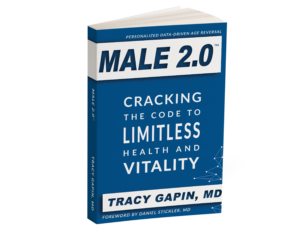 In Male 2.0™, Dr. Tracy Gapin has turned everything we once thought we knew about men’s health and performance upside down. The old model of how to be “a man” is broken. A man who works himself to death. Unfortunately, a man who tries to NOT get sick but isn’t really healthy either. And a man who takes a pill for every ill but is never really cured. That was Male 1.0. Now, imagine being THE MAN ─ owning your performance in the bedroom, the weight room, and the boardroom. Living a fully optimized life. Becoming limitless. This is Male 2.0!
In Male 2.0™, Dr. Tracy Gapin has turned everything we once thought we knew about men’s health and performance upside down. The old model of how to be “a man” is broken. A man who works himself to death. Unfortunately, a man who tries to NOT get sick but isn’t really healthy either. And a man who takes a pill for every ill but is never really cured. That was Male 1.0. Now, imagine being THE MAN ─ owning your performance in the bedroom, the weight room, and the boardroom. Living a fully optimized life. Becoming limitless. This is Male 2.0!
Tracy Gapin, MD, FACS is a board-certified Urologist, world renowned Men’s Health & Performance Expert, Author, and Professional Speaker. Using state-of-the-art biometric monitoring, nutrition and lifestyle intervention, Dr. Gapin coaches Fortune 500 executives and evolutionary leaders of business, sports medicine, and high performance. He specializes in cutting-edge precision medicine with an emphasis on epigenetics, providing men with a personalized path to optimizing health & performance. www.GapinInstitute.com
Want more tips to optimize your health? Listen to the latest podcasts. Click HERE
Ready to take the next steps!?
Download the Blueprint
Schedule a Call
**************************
Stop ED in its Tracks

Erectile dysfunction, or ED, occurs when a man has difficulty achieving or maintaining an erection for sexual intercourse. It can be awkward and cause feelings of inadequacy. While ED can be a very distressing health issue, it can also be embarrassing to discuss with your health provider or physician.
ED is very common, with some research estimating that it affects about one in two American men over 40. (1) It’s up there with hair loss, weight gain, and low testosterone for the most popular men’s health concerns.
The good news is that there are several safe and effective ways to increase male libido and improve symptoms of ED. In this article, I’ll review some of the research on ED and provide some effective options for guys to improve their sexual performance and stop ED in its tracks.
What Causes Erectile Dysfunction?
To begin with, let’s take a bit of a look at what causes ED.
Erections occur when sexual stimulation causes the body to send out neurochemicals that relax muscles and increase blood flow to the penis. This causes the penis to enlarge and harden.
Because this process involves a complex combination of psychological input and biological mechanisms, there are a number of ways it can go wrong. Both psychological and physical factors, as well as lifestyle factors, can cause or contribute to ED. (1, 2, 3) Here are some of the most common causes of ED:
Psychological factors:
- Stress
- Anxiety
- Depression
Physical factors:
- Diabetes
- High blood pressure
- Nerve damage
- Neurological disorders
- Stroke
- Blood clots
- Atherosclerosis
- Spinal disease
Lifestyle factors:
- Smoking
- Alcohol
- Drug abuse
- Inactivity
- Other medications like antidepressants
Each of these may be enough to cause symptoms of ED on their own, but they can also occur together. So what can a guy do to prevent or treat ED?
Diet and Erectile Dysfunction
Several studies have shown that good nutrition can actually help prevent ED. If you put garbage into your body, you’re not going to get your best out of it. You want to make sure you’re fueling yourself with high-quality, nutritious foods so you can maximize your performance in all respects, including in the bedroom.

Foods to choose
In general, aim for non-processed, fresh foods and a diet rich in vegetables, healthy fats, and fish (6). The Mediterranean diet seems to be particularly effective for preventing ED. (4)
Some particular foods may be especially useful for protecting against ED. These include:
- Pistachios (5)
- Watermelon
- Leafy greens
- Beets
- Dark chocolate
- Oysters
- Shellfish
- Tomatoes
- Pink Grapefruit
- Onions and garlic
- Cranberries
- Tea
- Peanuts
Foods to avoid
Some foods are known to contribute to ED symptoms, so try to avoid them. Common ones include (6):
- Excessive Alcohol
- Red meat
- Full fat dairy
- Sugary foods and drinks (7)
- Foods that are high in saturated and trans fats
- White bread and processed foods (8)
Supplements
Can supplements help ED? It appears that some can be effective erectile dysfunction remedies. Here are some of the better-known supplements that can help improve ED:
Exercises to Help Erectile Dysfunction
Exercise is probably the best natural remedy for erectile dysfunction. Improving cardiovascular fitness together with maintaining a healthy weight have both been shown to be especially effective at helping men achieve satisfying erections.
Cardiovascular fitness
One of the causes of ED is inadequate or impeded blood flow to the penis. Studies have shown that people with ED typically have lower heart-rate variability (HRV), which suggests reduced vascular efficiency and poor overall health. (13) And research has found that moderate and high physical activity are associated with a lower risk of developing ED (6).
When a guy exercises, and especially when he challenges his cardiovascular system, he is training his body to pump his blood more efficiently. Cardiovascular exercise can also reduce hypertension and prevent cardiovascular disease, both of which are associated with ED.
More than that, exercise also has beneficial effects on a person’s self-esteem and mental health, each of which can positively impact the psychological factors associated with sexual dysfunction. (6)
Try to get at least 150 minutes of moderate-intensity aerobic exercise a week. (14) Common aerobic exercises are:
- Running
- Cycling
- Swimming
- Playing tennis

Strength training
Strength training exercises can also help address ED. Strength training and muscle building can build self-esteem and confidence in bed. And, as a nice side-effect, a firmer physique may be more attractive to your partner.
Try to do strength training exercises for all major muscle groups at least two times a week. (14) You can get this by working out at the gym, or you can try a body-weight training exercise program.
Weight loss
Being overweight is actually one of the biggest causes of ED (6). Excess fat seems to change body chemistry and lower testosterone which lowers men’s libido. Several studies have found that when overweight guys experience healthy weight loss, their erectile function improves. (15)
Combining a healthy diet and regular exercise is a good start for guys with a bit extra belly fat to lose some weight.
Additional lifestyle changes
Besides exercising and eating well, there are a number of lifestyle changes that can help you improve your health and sexual performance.
Reduce stress
Stress is known to reduce libido and is an erection killer. It also contributes to other poor health habits like excessive drinking and smoking. If you find ways to cope with your stress, you’ll remove one possible cause of ED.
There are lots of things you can do to combat stress. Consider strategies like starting a meditation routine, connecting regularly with friends, or even seeing a therapist.
Sleep
Sleep is one of the most important factors in health, especially as we age. Research shows that individuals who do not get adequate sleep—around 7 to 8 hours a night—are more likely to suffer from ED. Sleep apnea, a condition that keeps people from getting enough air as they sleep, which in turn causes them to continually wake up throughout the night, is an especially potent cause of ED. (16)
The solution? Get enough sleep.
The best way to get enough sleep is to create habits and routines that contribute to sleep hygiene. That includes going to bed at the same time every night, making your sleep environment comfortable, and removing distractions. If you suffer from sleep apnea, discuss treatment options with your doctor.
Communicate with your partner
Open, honest communication with your partner can help build a stronger relationship and enhance emotional closeness. And emotional closeness can lead to better sex. By expressing yourself, and especially expressing your sexual desires, you can increase sexual intimacy and improve your sexual experiences.

Therapy for Erectile Dysfunction
Sometimes even with the best care of your body, erectile dysfunction can occur. Luckily, there are lots of erectile dysfunction remedies.
Pills
You’re probably already familiar with sildenafil, or its trade name “Viagra”. Tadalafil, more commonly known as Cialis, is another oral treatment for ED. Both work by helping the blood vessels in the penis relax, allowing them to let more blood in. Both require sexual stimulation to work, and erections go away after sex. They are often effective treatments, but they may not work for everyone.
Medication injections
Medicated injections into the penis immediately before intercourse is an effective ED treatment. (17) There are several possible injections, including papaverine, phentolamine, prostaglandin E1 (PGE1), or alprostadil (Caverject, Edex, MUSE). Each of these work by causing smooth muscle in the penis to relax and blood to enter.
The Priapus P shot
The priapus p shot, also known simply as p-shots or the “P-shot”, is a different kind of injection. This form of therapy essentially involves taking plasma from a person’s own blood that is rich in platelets. That plasma is then injected into the penis. So rather than medicine, this injection uses material from a person’s own body.
Vacuum therapy
With vacuum therapy, a suction device is placed around the penis. It creates a difference in air pressure that draws blood into the penis. A ring placed at the base of the penis keeps the blood in and helps maintain the erection. The device can create an effective erection for about 30 minutes, after which the ring must be removed.
Hormone therapy
Hormone therapy, also known as hormone replacement therapy or HRT, is another potential way to beat ED. Testosterone plays a role in normal libido as well as in the erectile process. Men who have lower than normal testosterone may benefit from testosterone replacement therapy. This is especially the case for hypogonadal men with an ED diagnosis. (19)
Ultrasound therapy
It’s also possible to get ultrasound therapy for erectile dysfunction. This therapy involves sending low-intensity shockwaves, which causes microtraumas. The body then repairs the tissue and generates new blood vessels as it does so. Several studies have found that ultrasound therapy can result in improved blood flow for men with ED. (20)
Penile implant surgery
For stubborn cases of ED that fail other more conservative measures, guys can get a surgically-implanted penile prosthesis. This can either be semi-rigid or inflatable, and provide an ‘immediate’ erection when desired.
Using Precision Medicine
In addition to the general advice that’s good for everyone, there may be some specific ways that an individual can address their ED and increase libido.
Precision medicine is effective because it takes into account a person’s own specific genetic make-up. They complete a DNA test, which gives them insight into how their particular body chemistry works. This allows their doctor to tailor a health program directly to how their body is set up. Some providers, myself included, offer VIP lifestyle coaching that can be an effective way to address erectile dysfunction.
Conclusion: Don’t Let ED Get You Down
Sexual health isn’t just a nice to have—it’s incredibly important to our overall health. Sex can help us stay physically active, lower blood pressure, improve closeness with our partners, and even boost our immune systems. A healthy sex life is essential for our psychological well-being, too.

ED can be a major impediment to a man’s sexual health, but it doesn’t have to be. Guys can make changes to their lifestyle to help prevent ED, and there are a number of effective medical options to treat it.
It’s time to get empowered to take control of your health. Unlock the code to peak performance with the Male MethodTM to regain your energy, focus and confidence and feel like a man again.
We take a whole-body, epigenetic approach to health, focusing on all inputs and how they affect the human system. With the Male 2.0 Method, we utilize science-based precision medicine, personalizing your health based on your unique genetic blueprint. No more guessing!
We utilize cutting-edge age management protocols to reverse the aging process and expand longevity. And we track and leverage your biometric data using state-of-the-art wearable technology to truly optimize your health.
Ready to take the next steps?
Schedule a Call
**************************
 In Male 2.0™, Dr. Tracy Gapin has turned everything we once thought we knew about men’s health and performance upside down. The old model of how to be “a man” is broken. A man who works himself to death. Unfortunately, a man who tries to NOT get sick but isn’t really healthy either. And a man who takes a pill for every ill but is never really cured. That was Male 1.0. Now, imagine being THE MAN ─ owning your performance in the bedroom, the weight room, and the boardroom. Living a fully optimized life. Becoming limitless. This is Male 2.0! Available on Amazon.
In Male 2.0™, Dr. Tracy Gapin has turned everything we once thought we knew about men’s health and performance upside down. The old model of how to be “a man” is broken. A man who works himself to death. Unfortunately, a man who tries to NOT get sick but isn’t really healthy either. And a man who takes a pill for every ill but is never really cured. That was Male 1.0. Now, imagine being THE MAN ─ owning your performance in the bedroom, the weight room, and the boardroom. Living a fully optimized life. Becoming limitless. This is Male 2.0! Available on Amazon.
Tracy Gapin, MD, FACS is a board-certified Urologist, world renowned Men’s Health & Performance Expert, Author, and Professional Speaker. Using state-of-the-art biometric monitoring, nutrition and lifestyle intervention, Dr. Gapin coaches Fortune 500 executives and evolutionary leaders of business, sports medicine, and high performance. He specializes in cutting-edge precision medicine with an emphasis on epigenetics, providing men with a personalized path to optimizing health & performance. www.DrTracyGapin.com
Want more tips to optimize your health?
Listen to the latest podcasts. Click HERE
References
- Feldman, H. A., Goldstein, I., Hatzichristou, D. G., Krane, R. J., & McKinlay, J. B. (1994). Impotence and its medical and psychosocial correlates: Results of the Massachusetts Male Aging Study. The Journal of Urology, 151(1), 54-61.
- Çayan, S., Kendirci, M., Yaman, Ö., Aşçı, R., Orhan, İ., Usta, M. F., … & Kadıoğlu, A. (2017). Prevalence of erectile dysfunction in men over 40 years of age in Turkey: Results from the Turkish Society of Andrology Male Sexual Health Study Group. Turkish Journal of Urology, 43(2), 122.
- Quilter, M., Hodges, L., von Hurst, P., Borman, B., & Coad, J. (2017). Male sexual function in New Zealand: a population-based cross-sectional survey of the prevalence of erectile dysfunction in men aged 40–70 years. The Journal of Sexual Medicine, 14(7), 928-936.
- Giugliano, F., Maiorino, M. I., Bellastella, G., Autorino, R., De Sio, M., Giugliano, D., & Esposito, K. (2010). Erectile dysfunction: adherence to Mediterranean diet and erectile dysfunction in men with type 2 diabetes. The Journal of Sexual Medicine, 7(5), 1911-1917.
- Aldemir, M., Okulu, E., Neşelioğlu, S., Erel, O., & Kayıgil, Ö. (2011). Pistachio diet improves erectile function parameters and serum lipid profiles in patients with erectile dysfunction. International Journal of Impotence Research, 23(1), 32-38.
- Maiorino, M. I., Bellastella, G., & Esposito, K. (2015). Lifestyle modifications and erectile dysfunction: what can be expected?. Asian Journal of Andrology, 17(1), 5.
- Adamowicz, J., & Drewa, T. (2011). Is there a link between soft drinks and erectile dysfunction?. Central European Journal of Urology, 64(3), 140.
- Dhindsa, S., Miller, M. G., McWhirter, C. L., Mager, D. E., Ghanim, H., Chaudhuri, A., & Dandona, P. (2010). Testosterone concentrations in diabetic and nondiabetic obese men. Diabetes Care, 33(6), 1186-1192.
- Jang, D. J., Lee, M. S., Shin, B. C., Lee, Y. C., & Ernst, E. (2008). Red ginseng for treating erectile dysfunction: A systematic review. British Journal of Clinical Pharmacology, 66(4), 444-450.
- Brown, R. P., Gerbarg, P. L., & Ramazanov, Z. (2002). Rhodiola rosea: A phytomedicinal overview. HerbalGram, 56, 40-52.
- Reiter, W. J., Pycha, A., Schatzl, G., Pokorny, A., Gruber, D. M., Huber, J. C., & Marberger, M. (1999). Dehydroepiandrosterone in the treatment of erectile dysfunction: a prospective, double-blind, randomized, placebo-controlled study. Urology, 53(3), 590-594.
- Chen, J., Wollman, Y., Chernichovsky, T., Iaina, A., Sofer, M., & Matzkin, H. (1999). Effect of oral administration of high-dose nitric oxide donor L-arginine in men with organic erectile dysfunction: results of a double-blind, randomized, placebo-controlled study. BJU International, 83(3), 269-273.
- Harte, C. B. (2013). The relationship between resting heart rate variability and erectile tumescence among men with normal erectile function. The Journal of Sexual Medicine, 10(8), 1961-1968.
- Center for Disease Control and Prevention. (n.d.). How much physical activity do adults need? https://www.cdc.gov/physicalactivity/basics/adults/index.htm
- Dallal, R. M., Chernoff, A., O’Leary, M. P., Smith, J. A., Braverman, J. D., & Quebbemann, B. B. (2008). Sexual dysfunction is common in the morbidly obese male and improves after gastric bypass surgery. Journal of the American College of Surgeons, 207(6), 859-864.
- Zias, N., Bezwada, V., Gilman, S., & Chroneou, A. (2009). Obstructive sleep apnea and erectile dysfunction: still a neglected risk factor?. Sleep and Breathing, 13(1), 3-10.
- Duncan, C., Omran, G. J., Teh, J., Davis, N. F., Bolton, D. M., & Lawrentschuk, N. (2019). Erectile dysfunction: A global review of intracavernosal injectables. World Journal of Urology, 37(6), 1007-1014.
- Scott, S., Roberts, M., & Chung, E. (2019). Platelet-rich plasma and treatment of erectile dysfunction: Critical review of literature and global trends in platelet-rich plasma clinics. Sexual Medicine Reviews, 7(2), 306-312.
- Jacob, B. C. (2011). Testosterone replacement therapy in males with erectile dysfunction. Journal of Pharmacy Practice, 24(3), 298-306.
- Gruenwald, I., Appel, B., Kitrey, N. D., & Vardi, Y. (2013). Shockwave treatment of erectile dysfunction. Therapeutic Advances in Urology, 5(2), 95-99.

